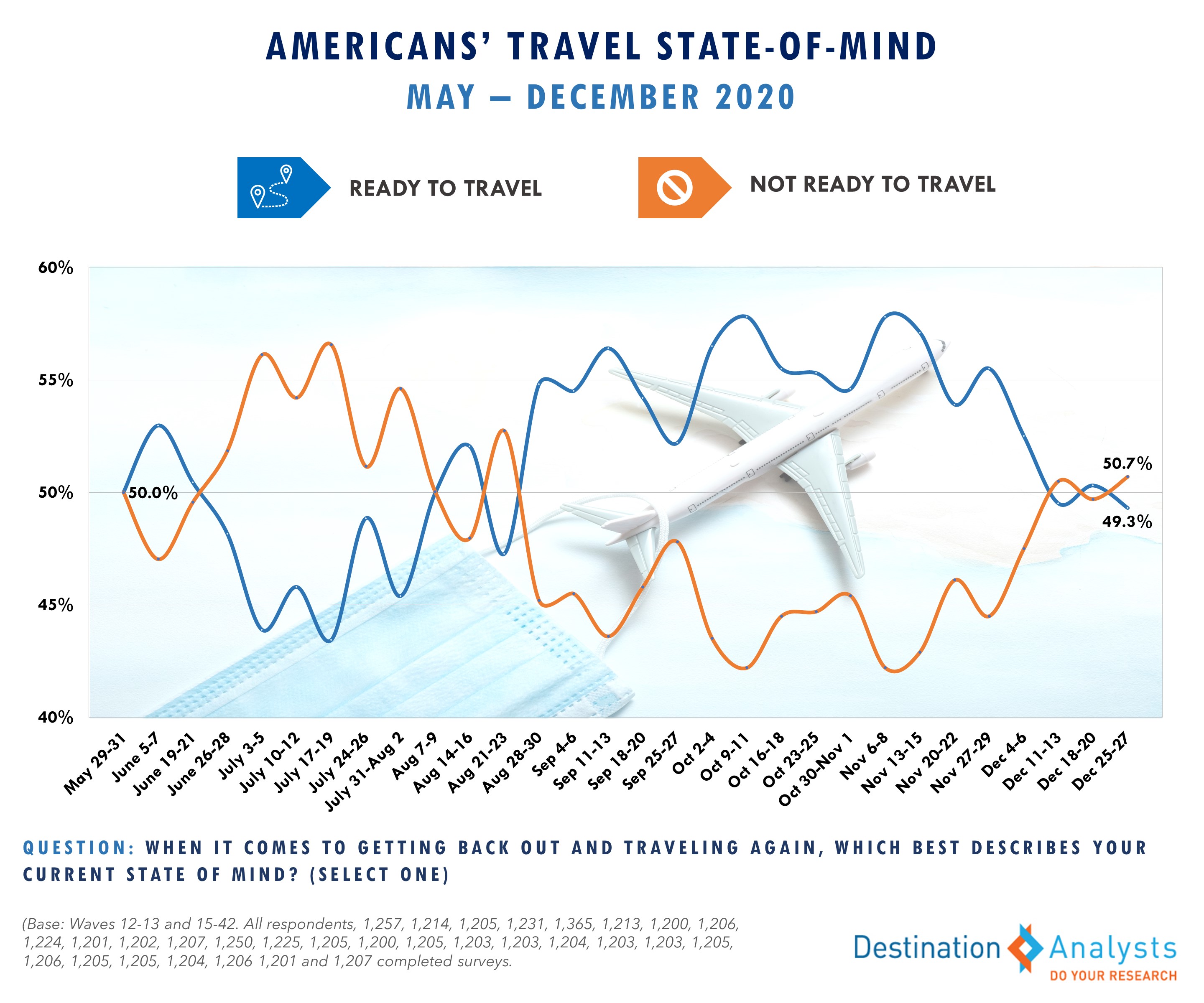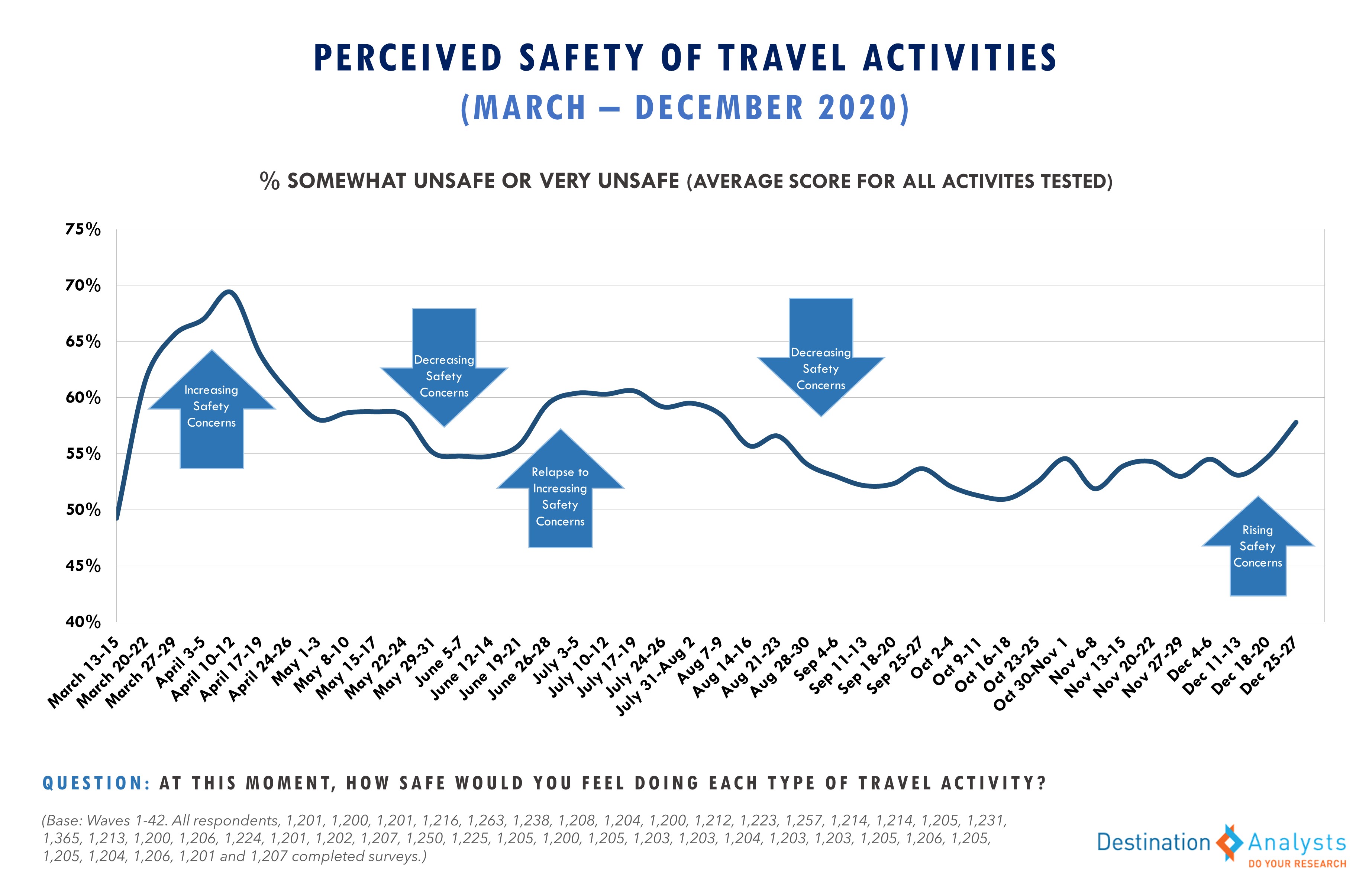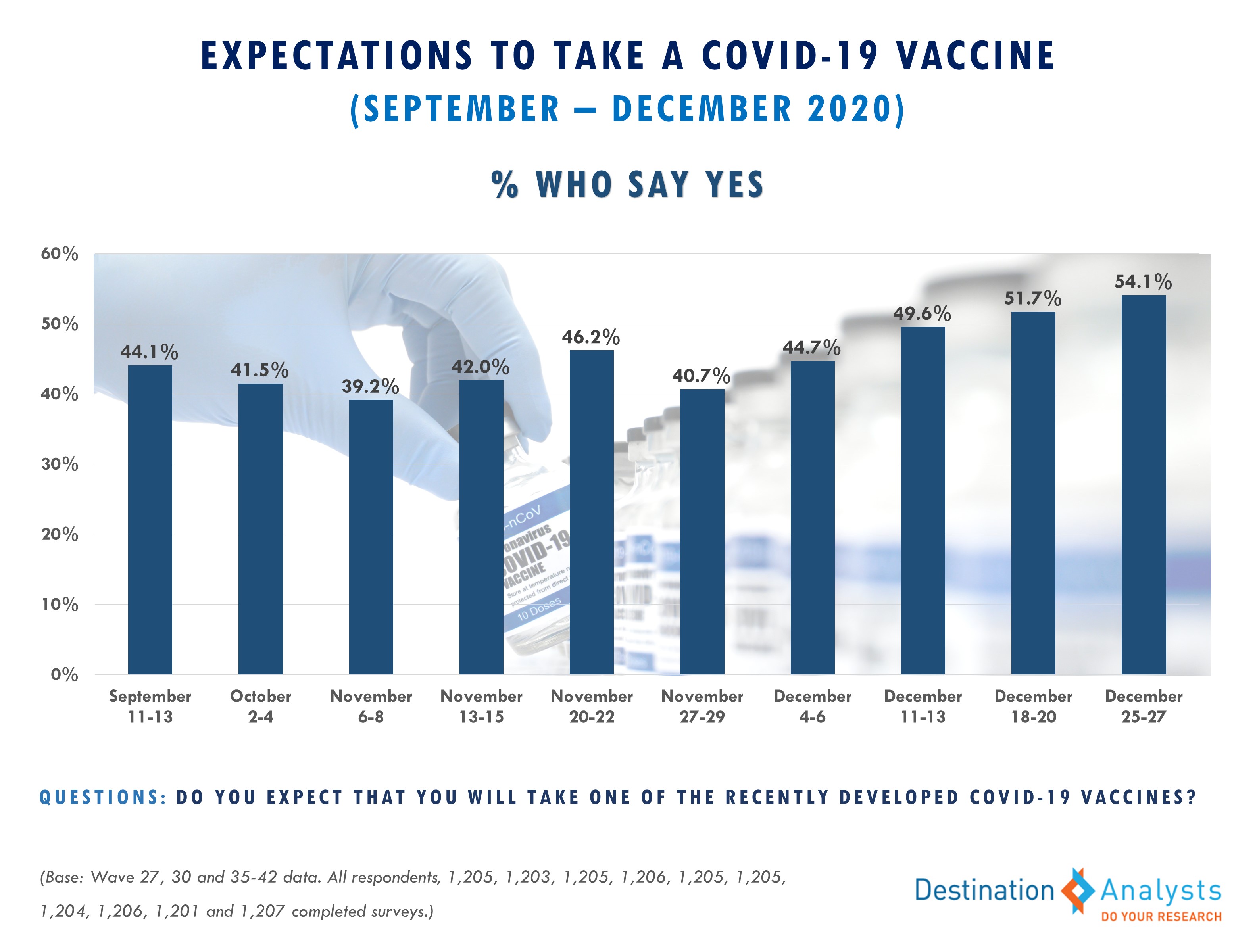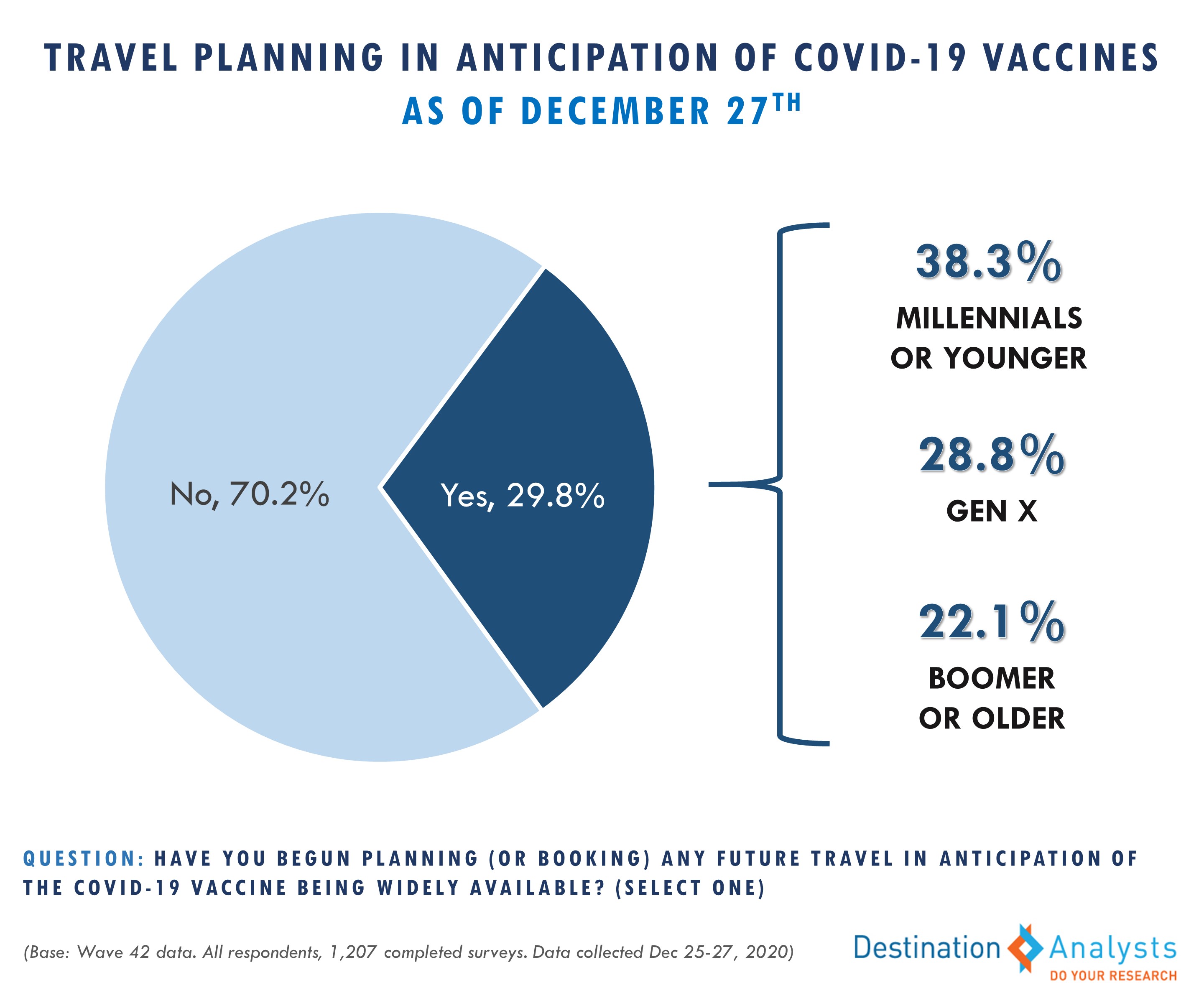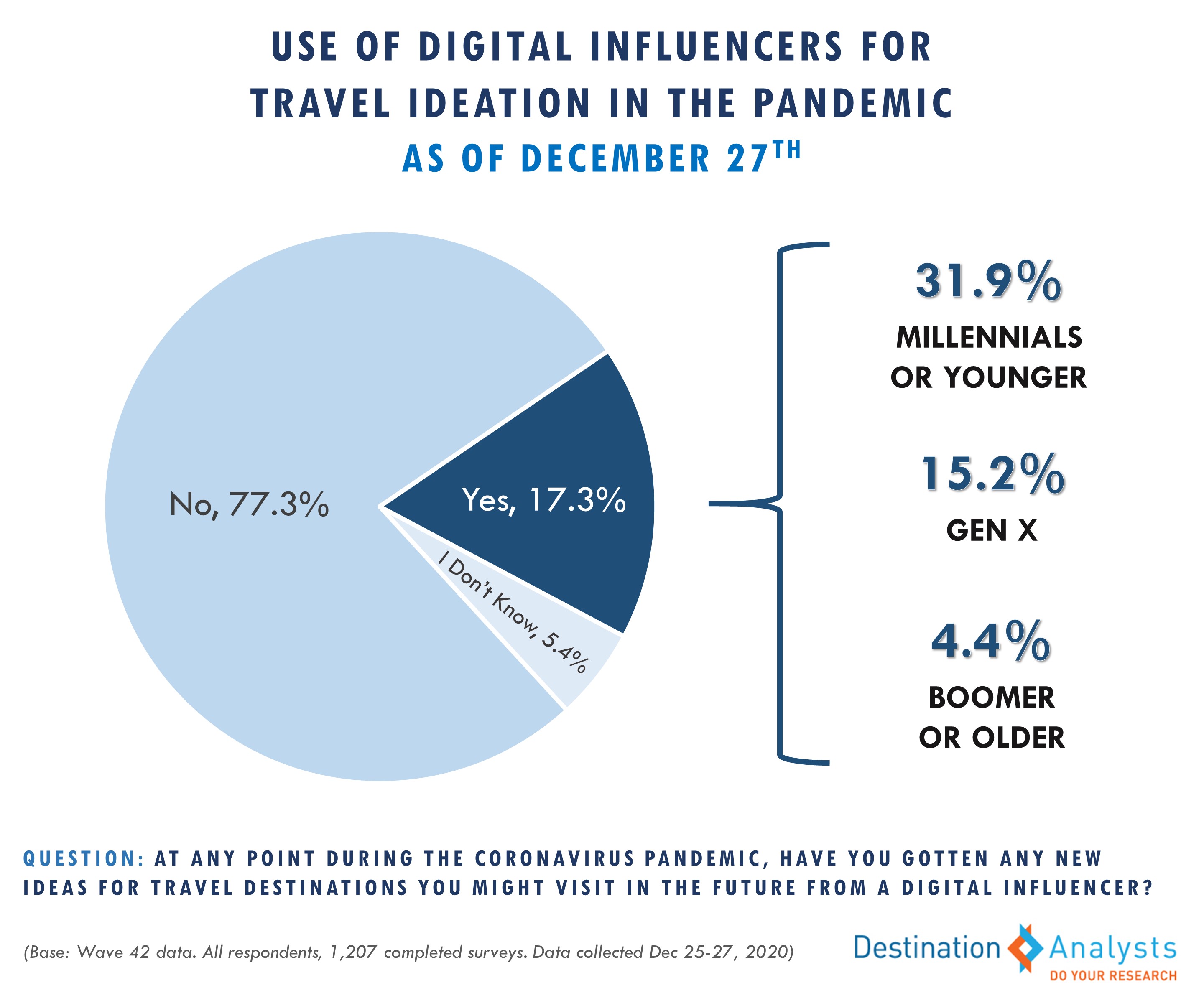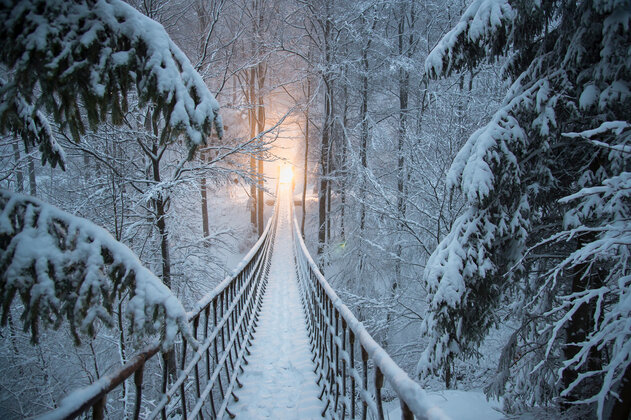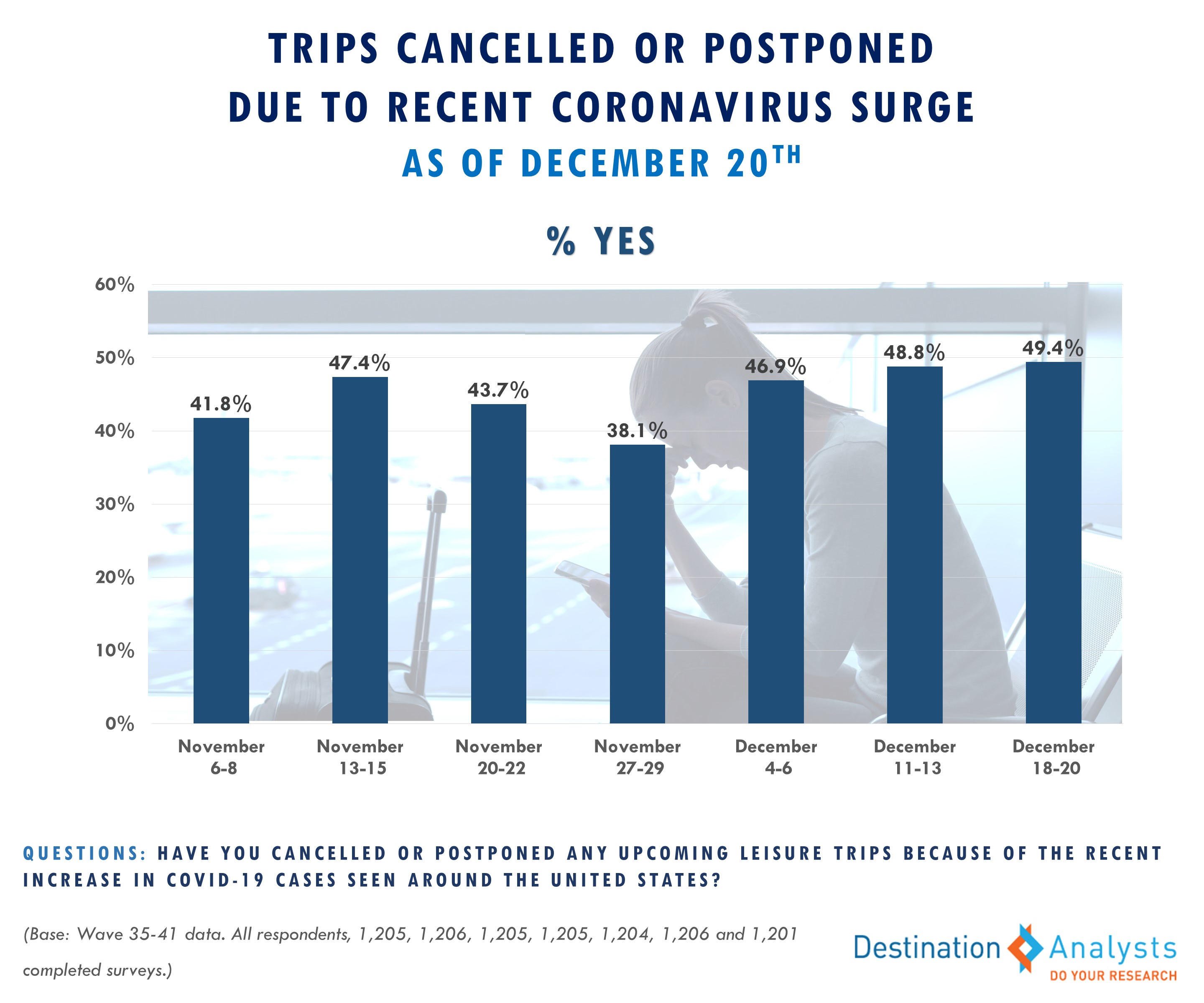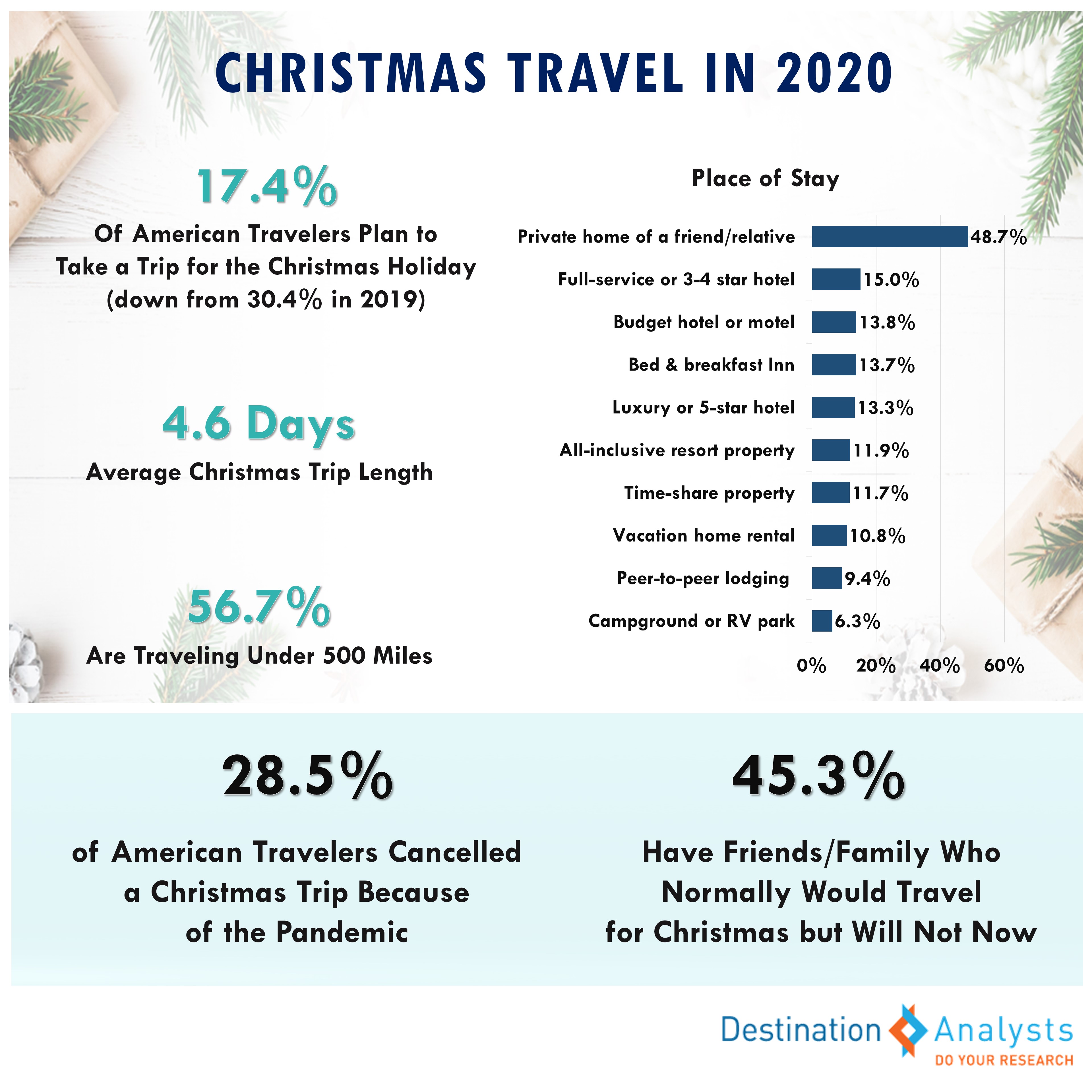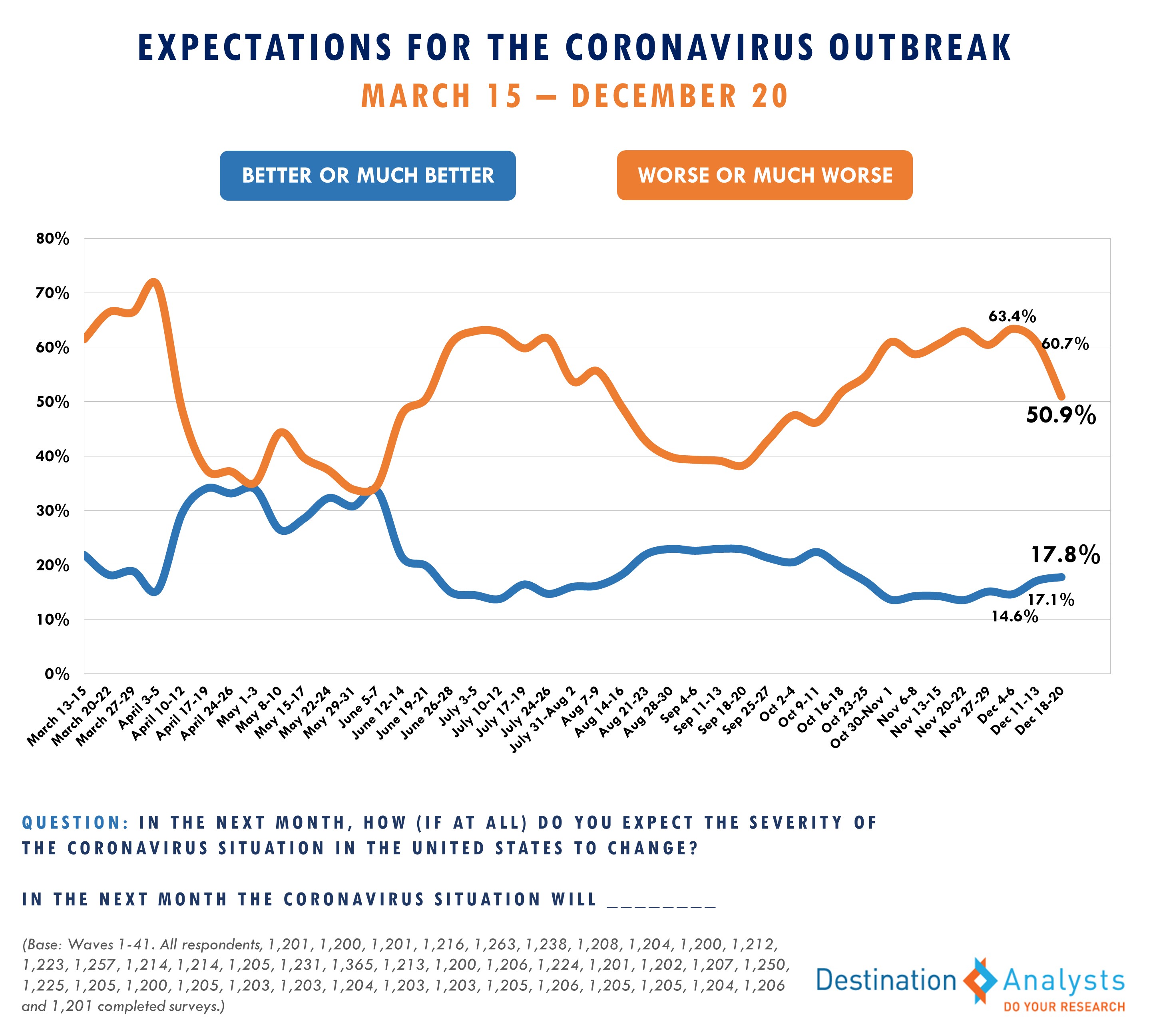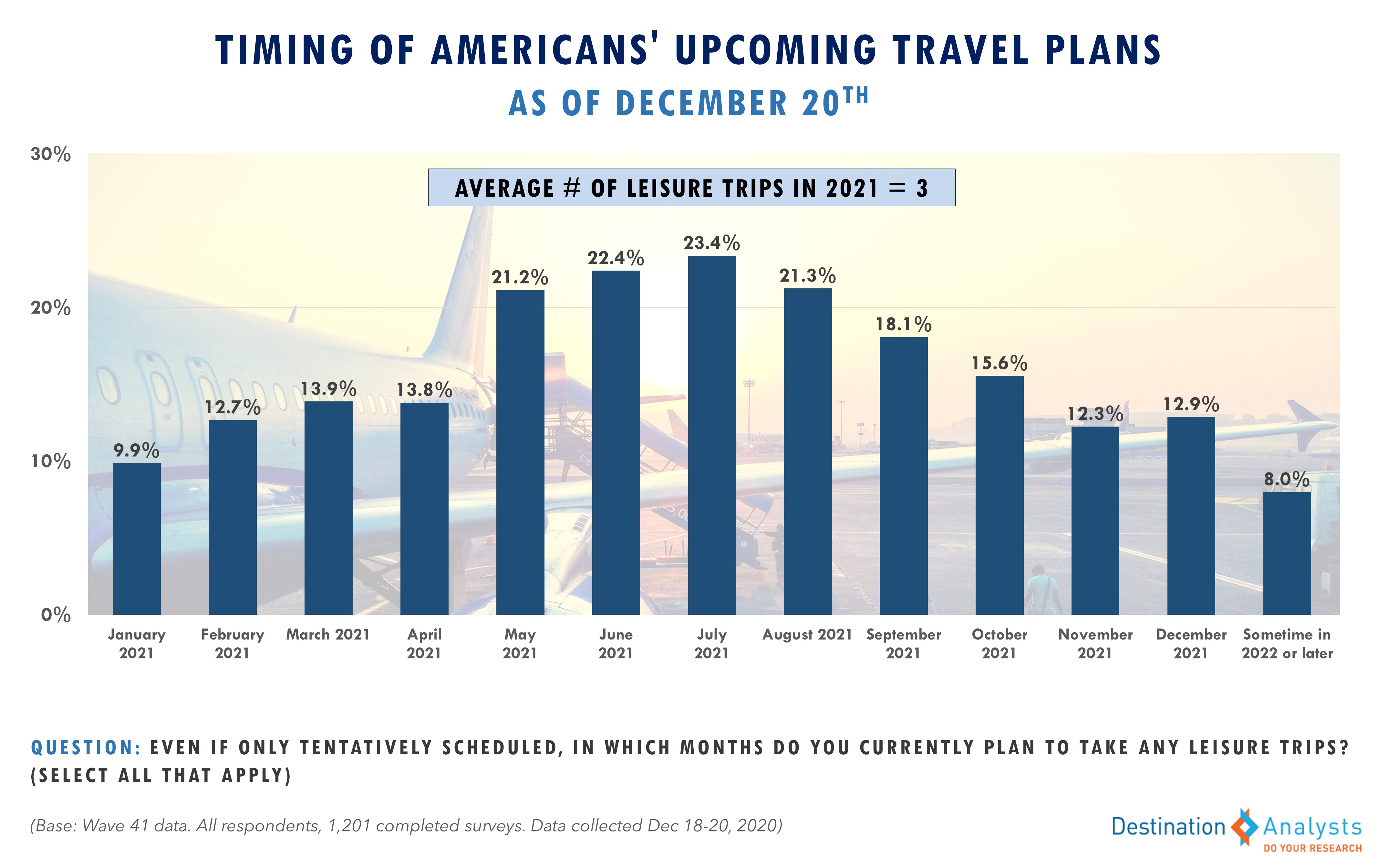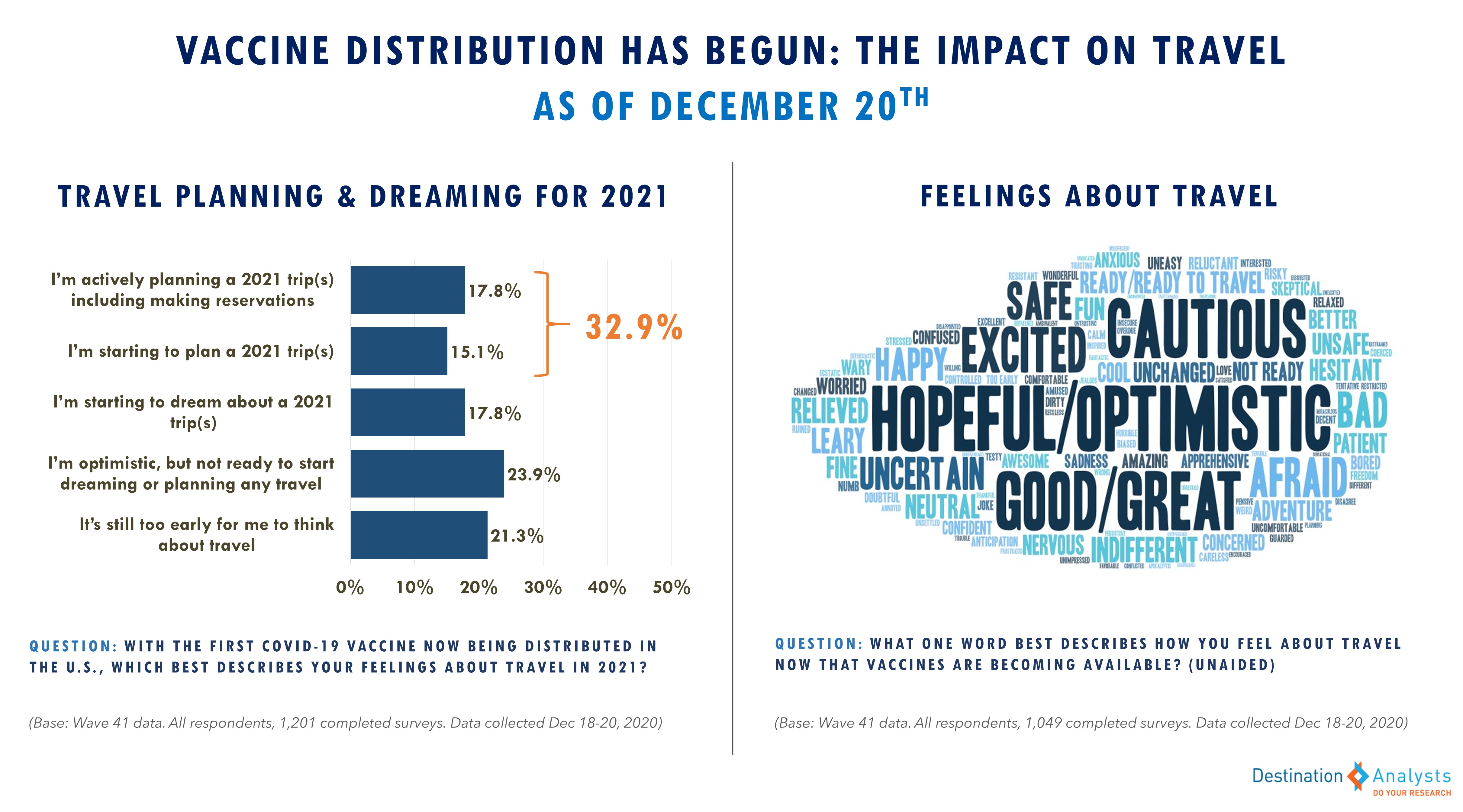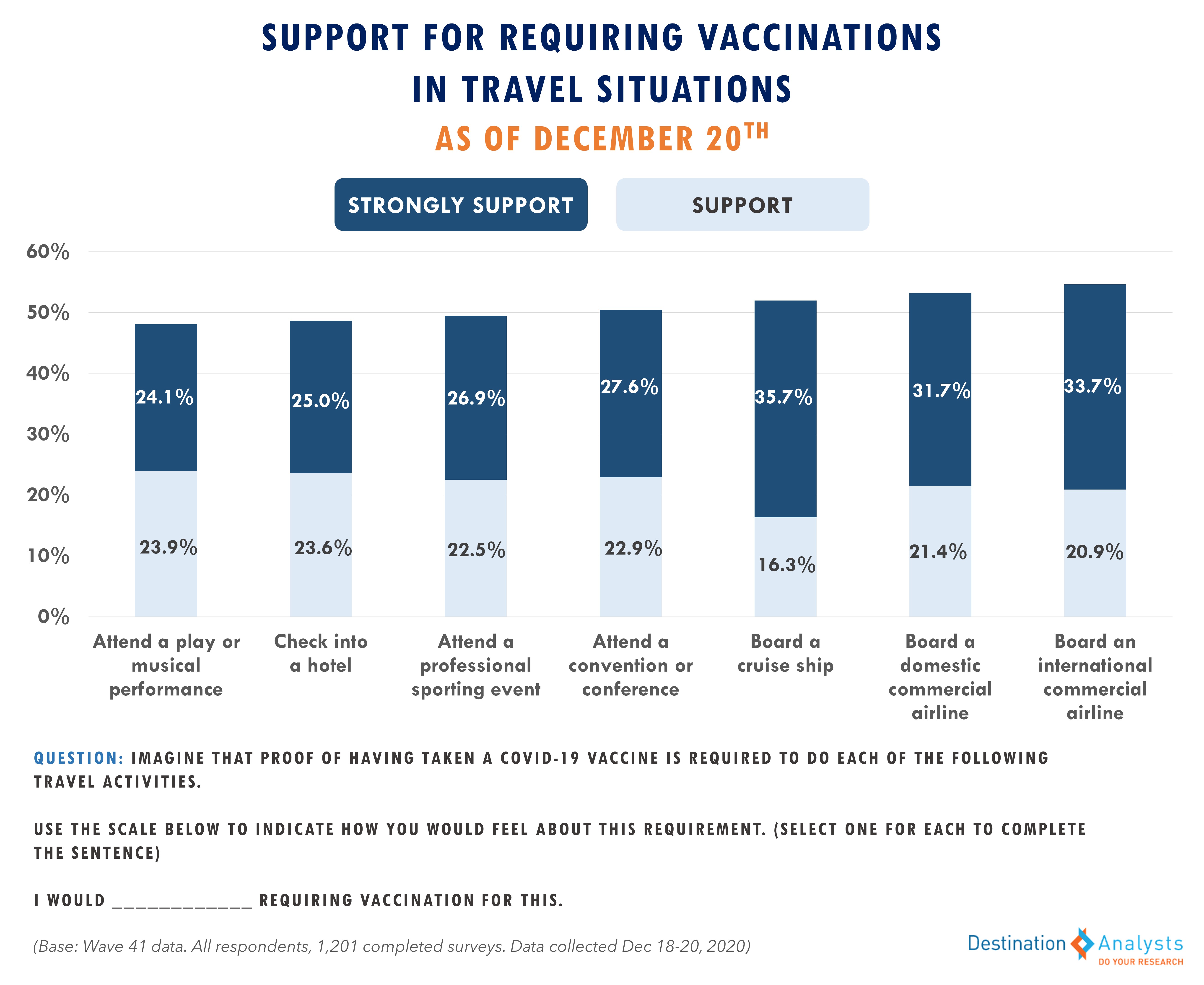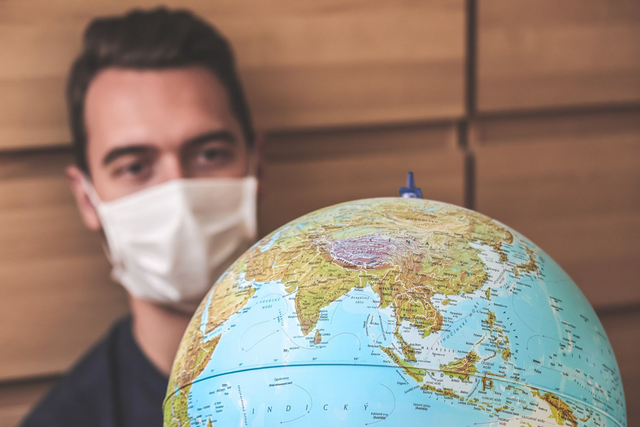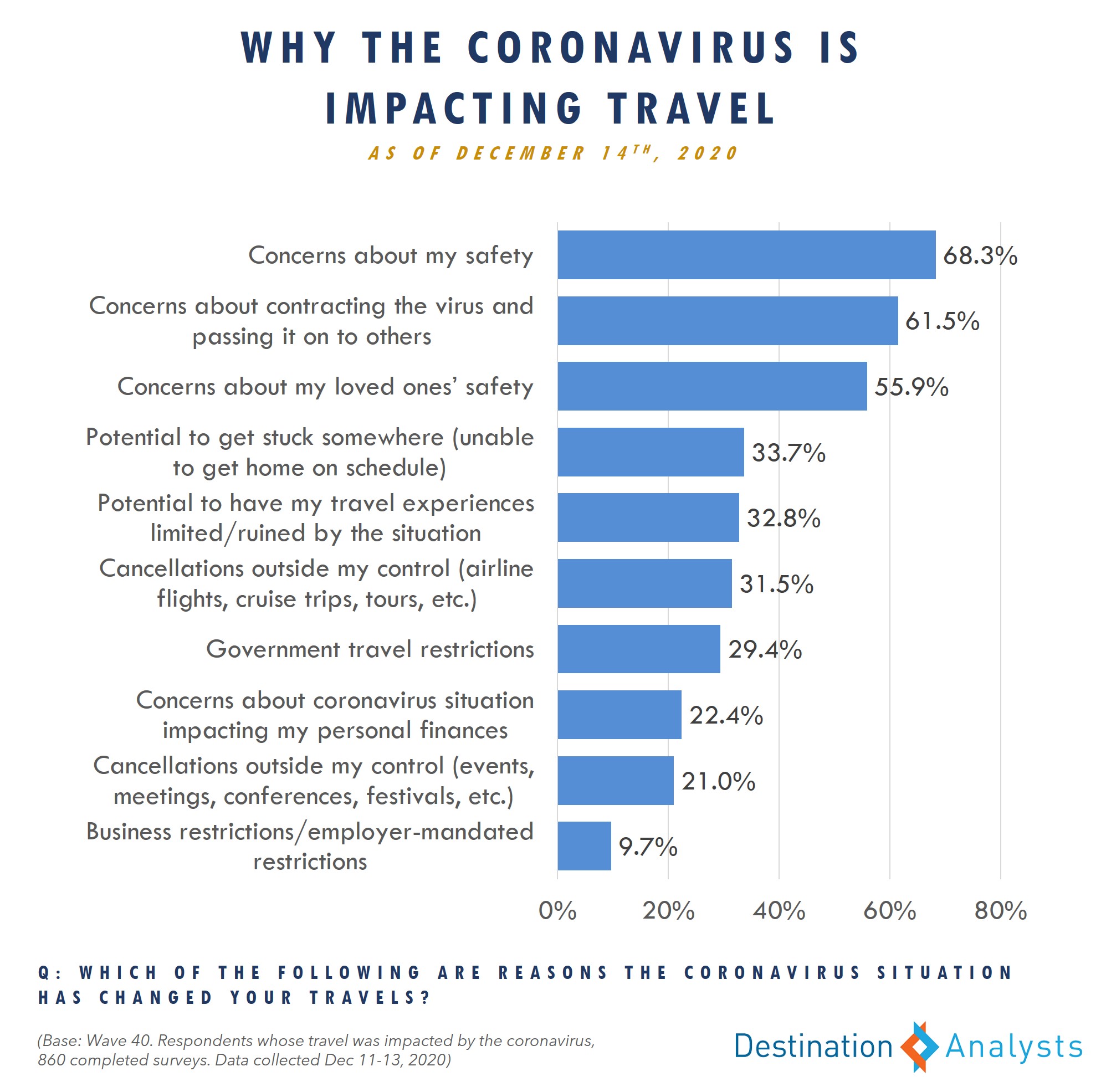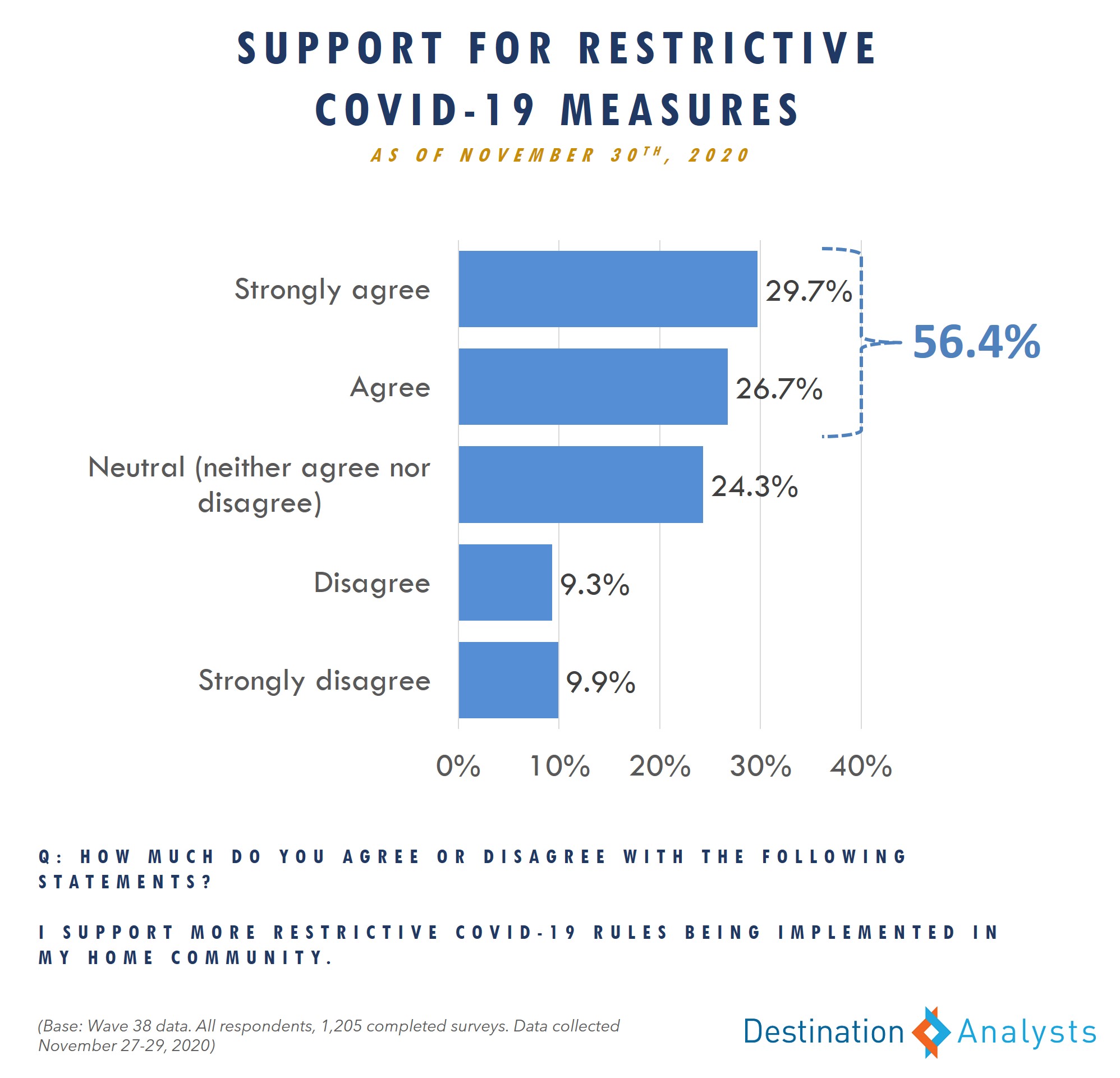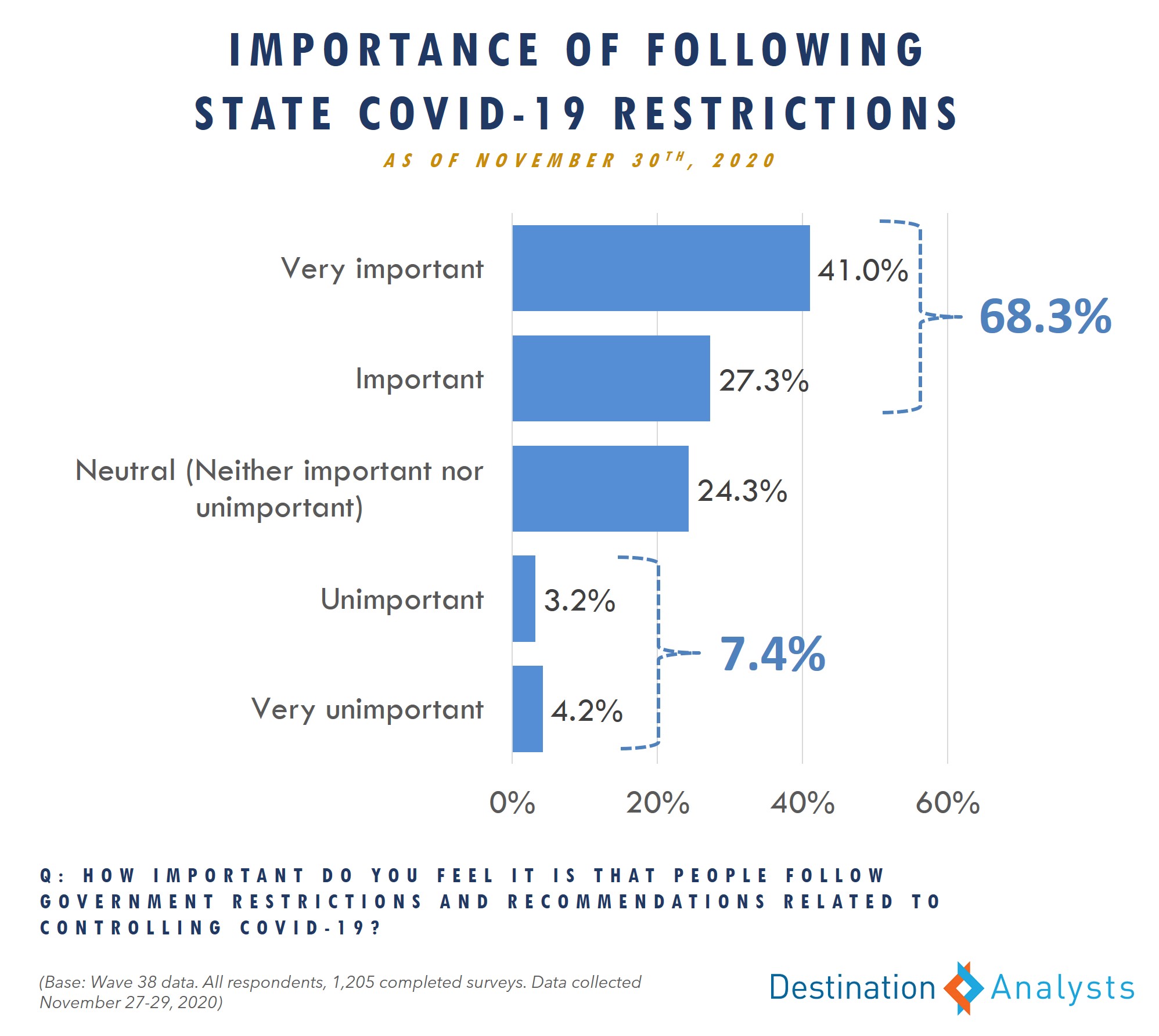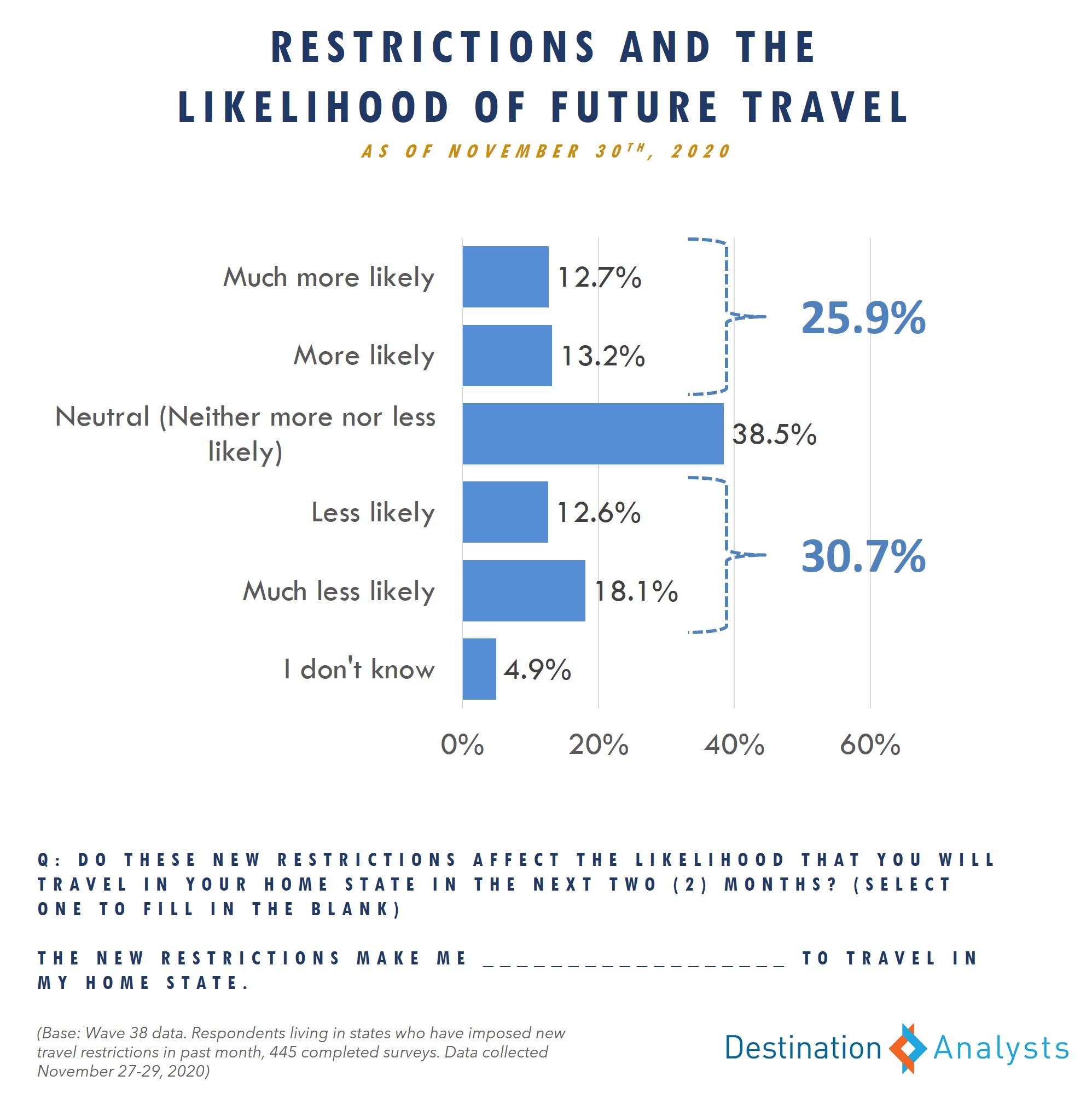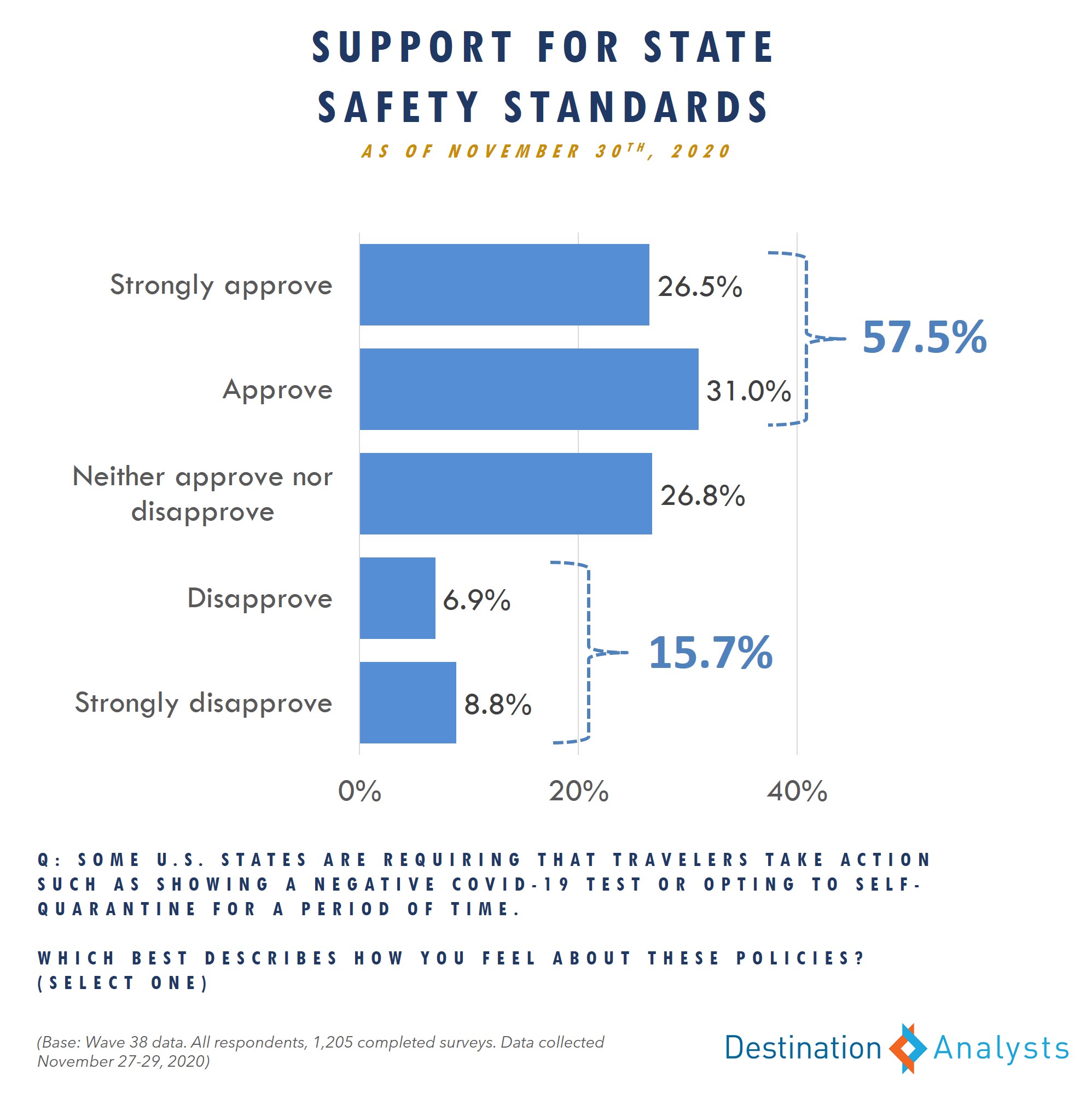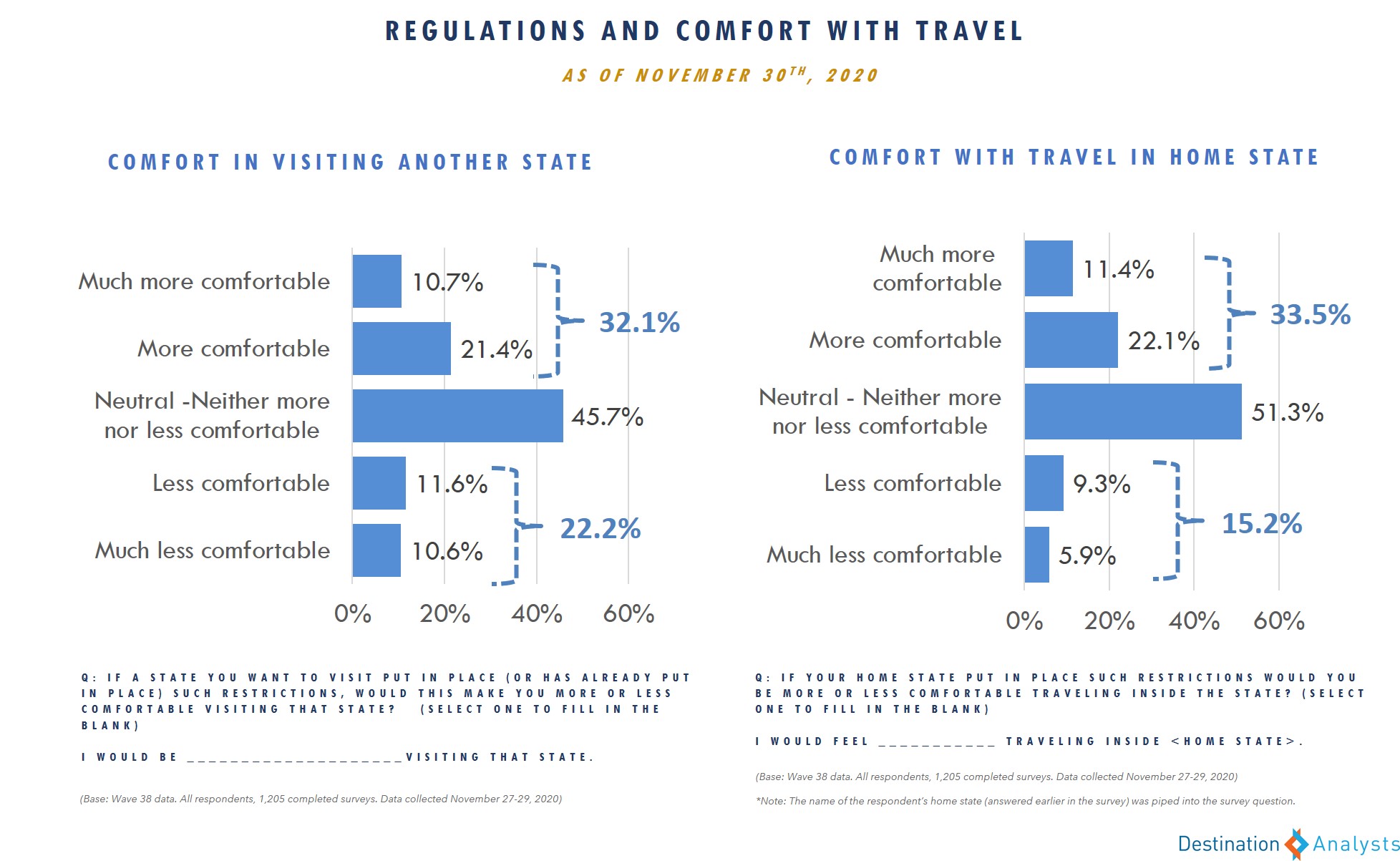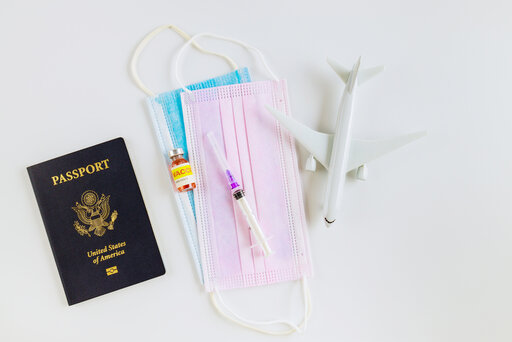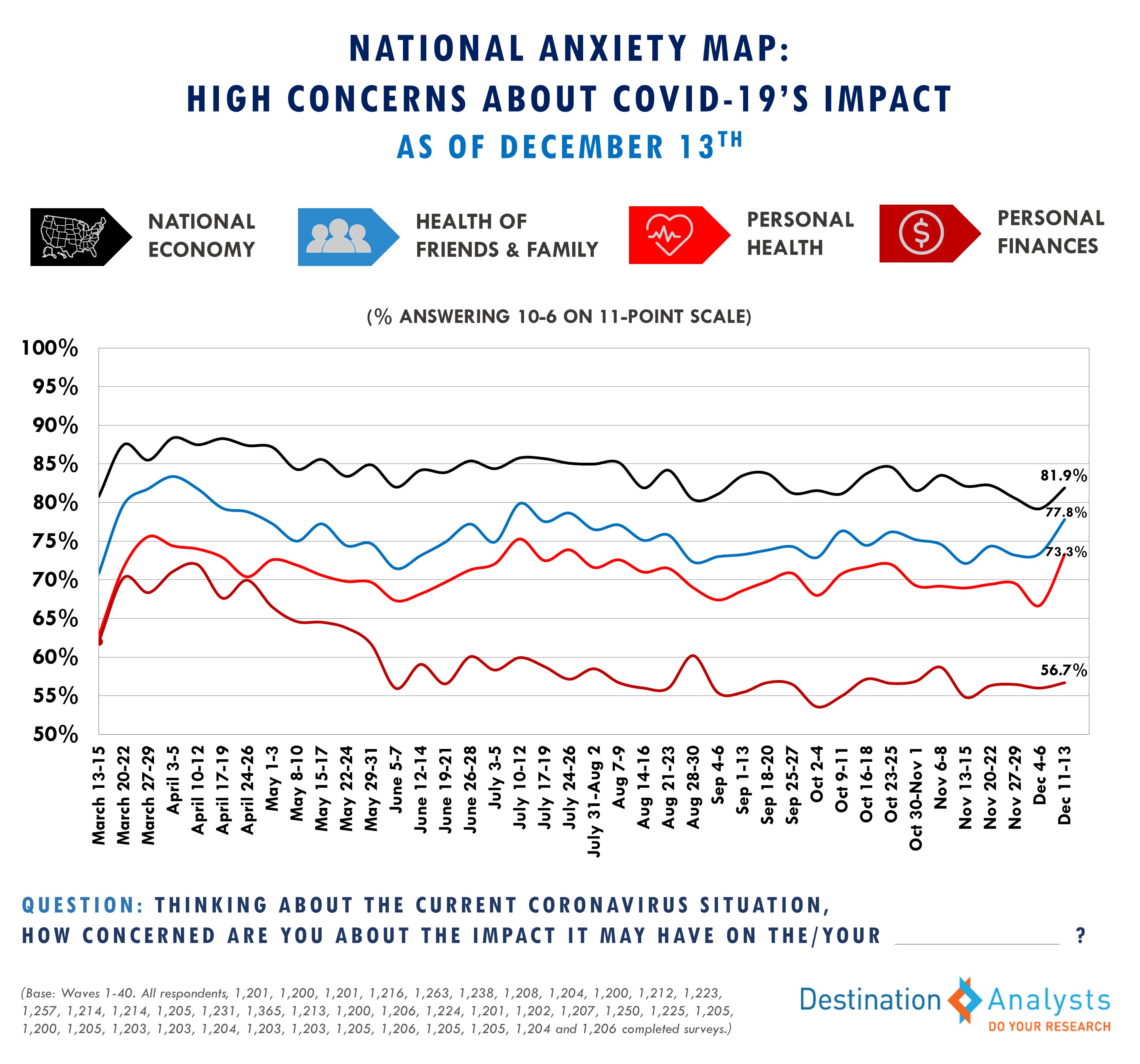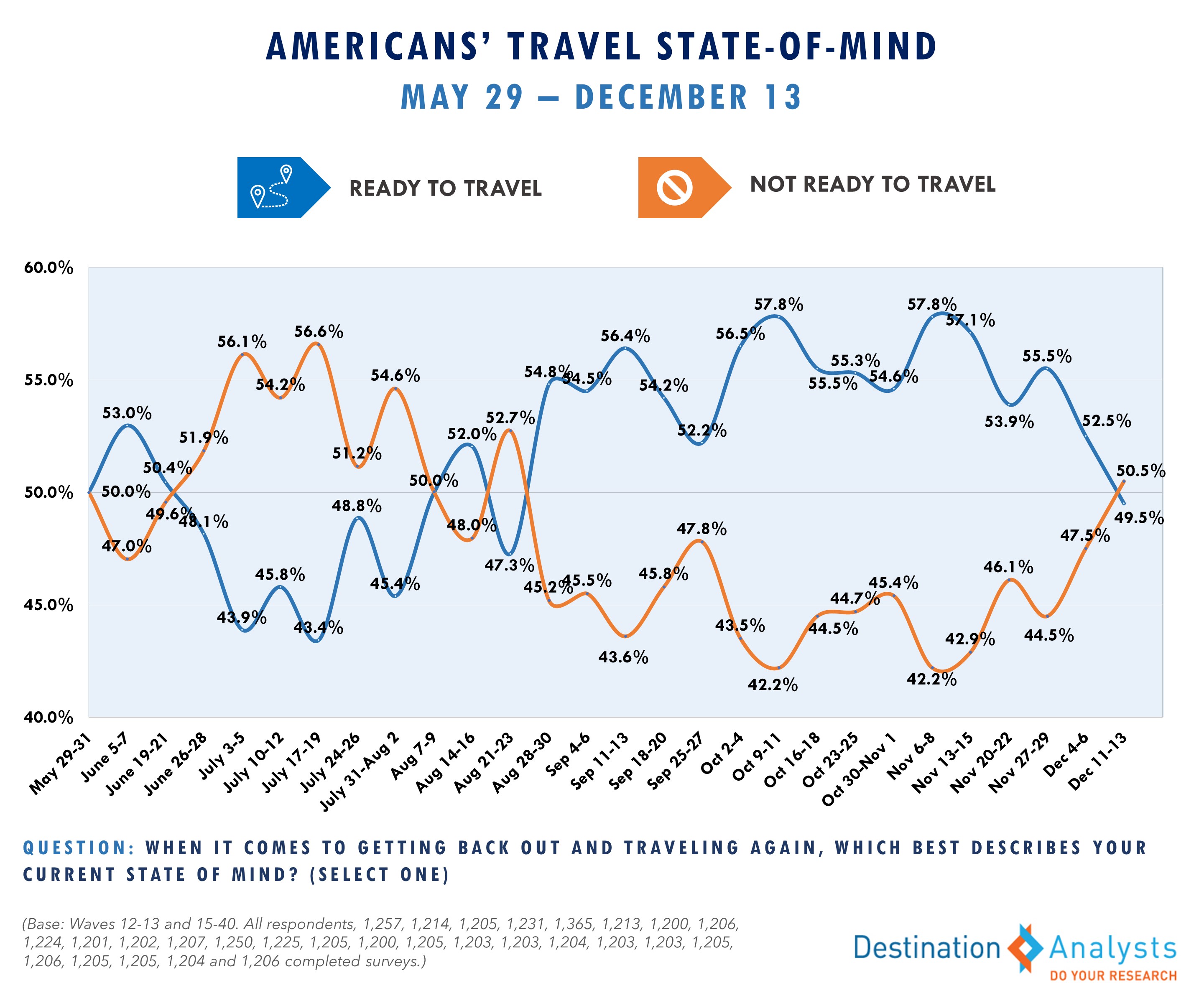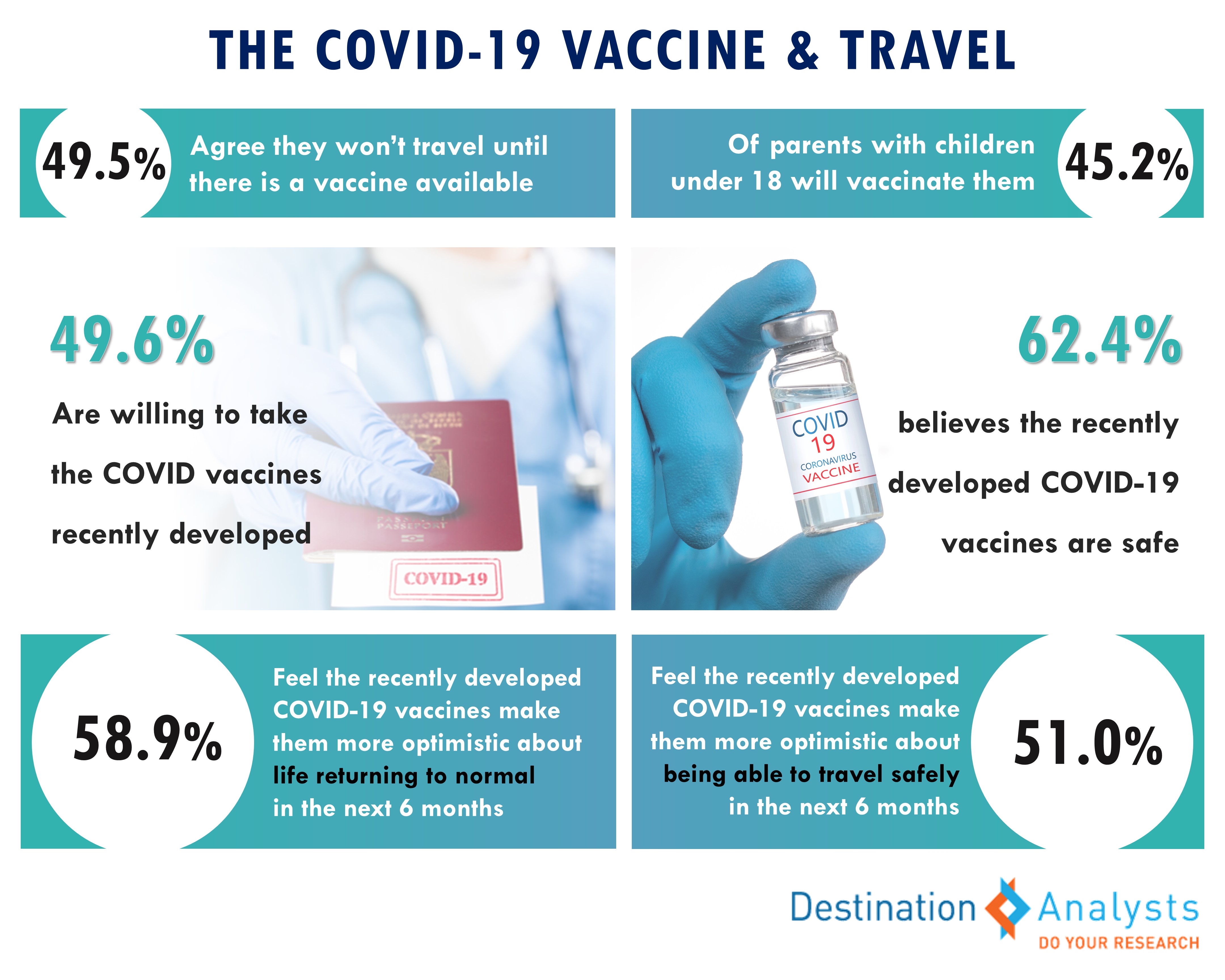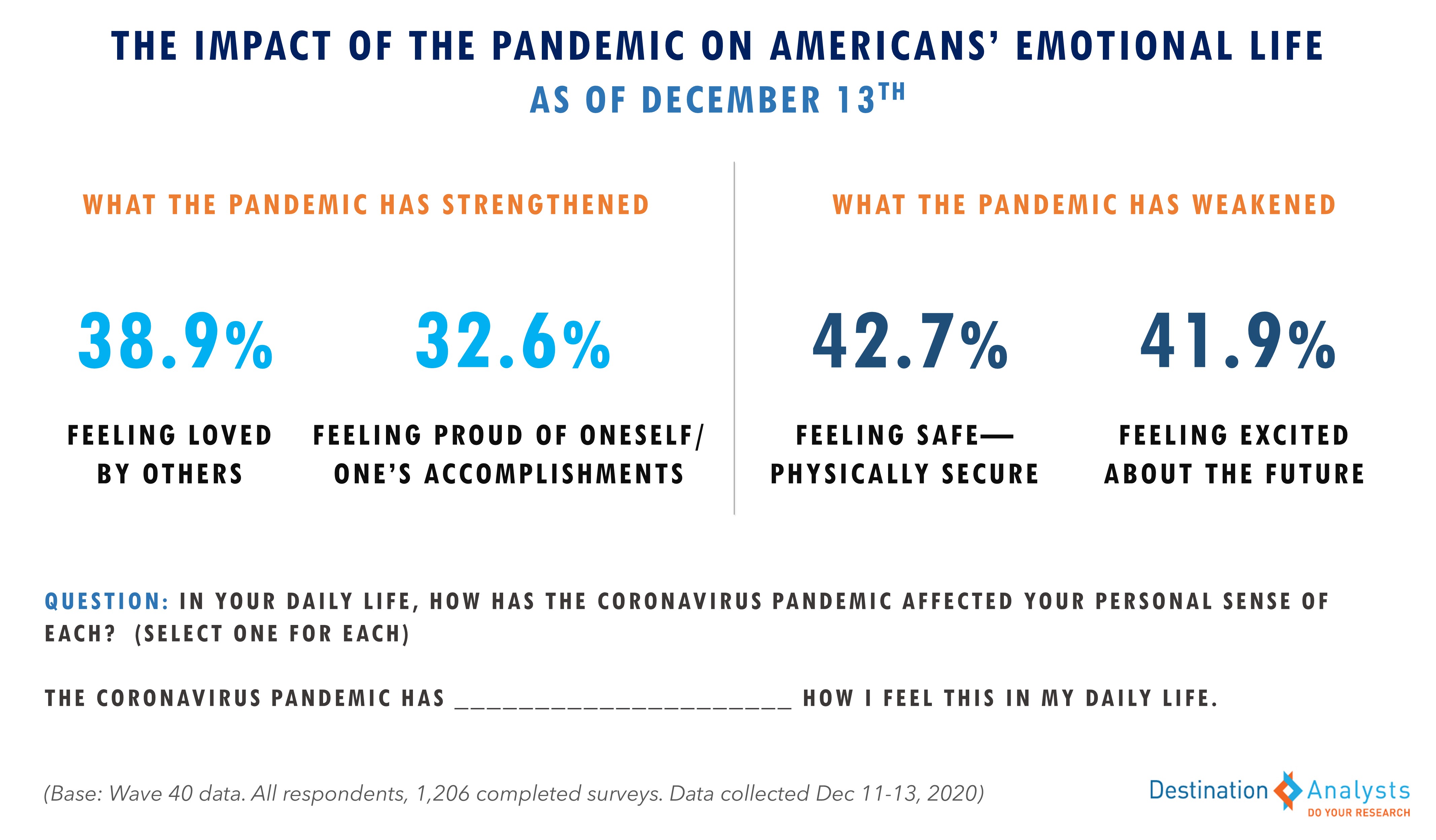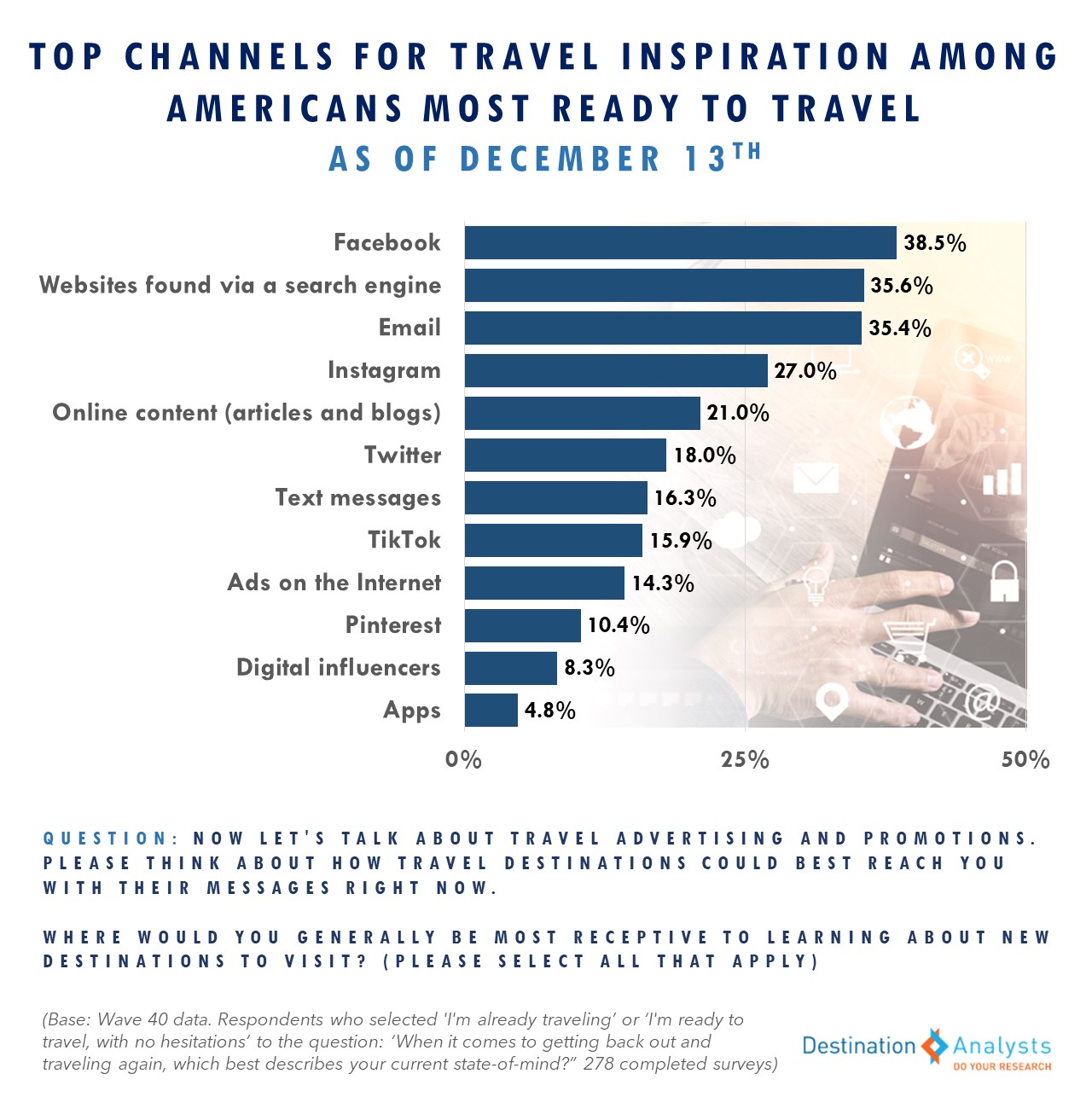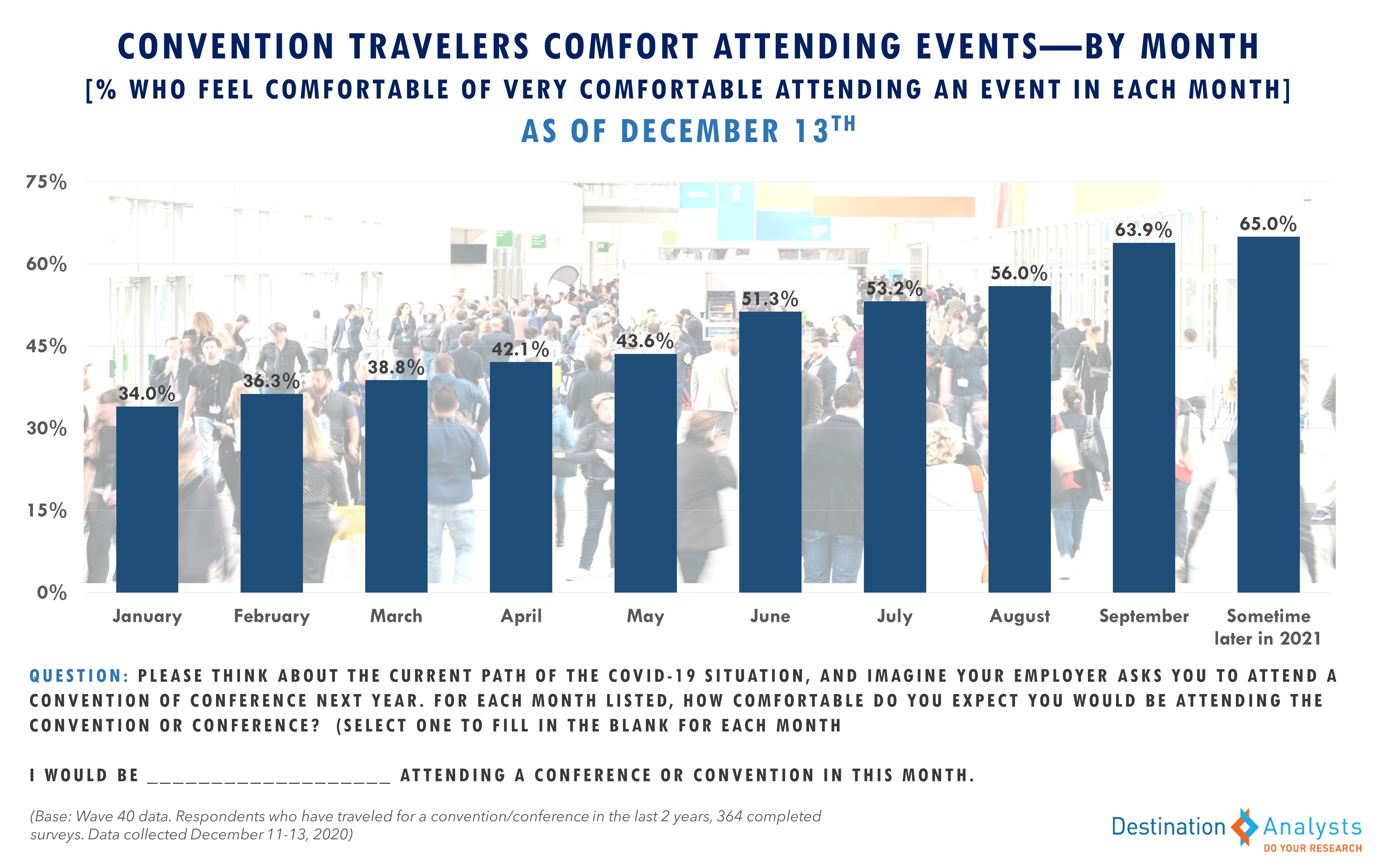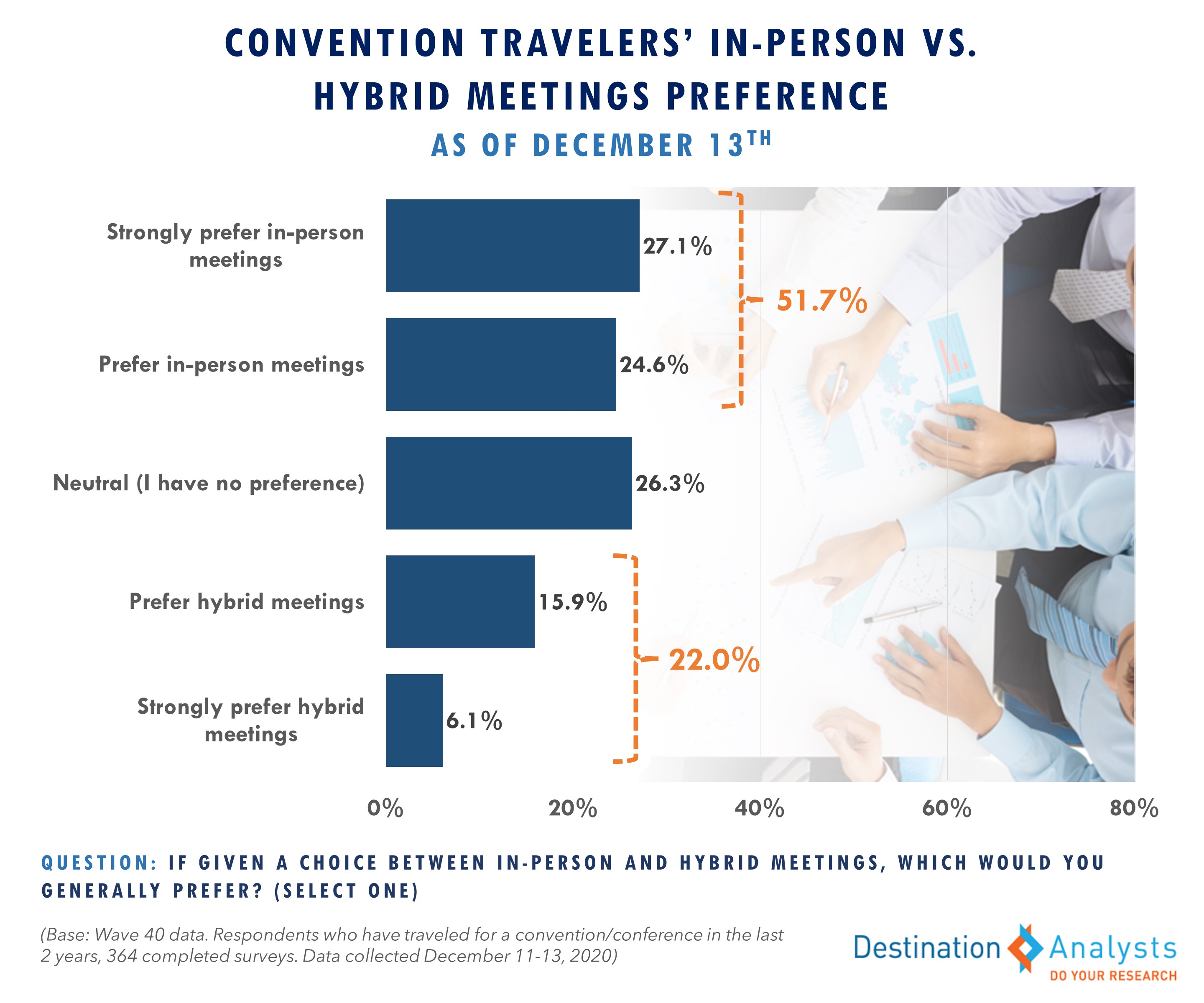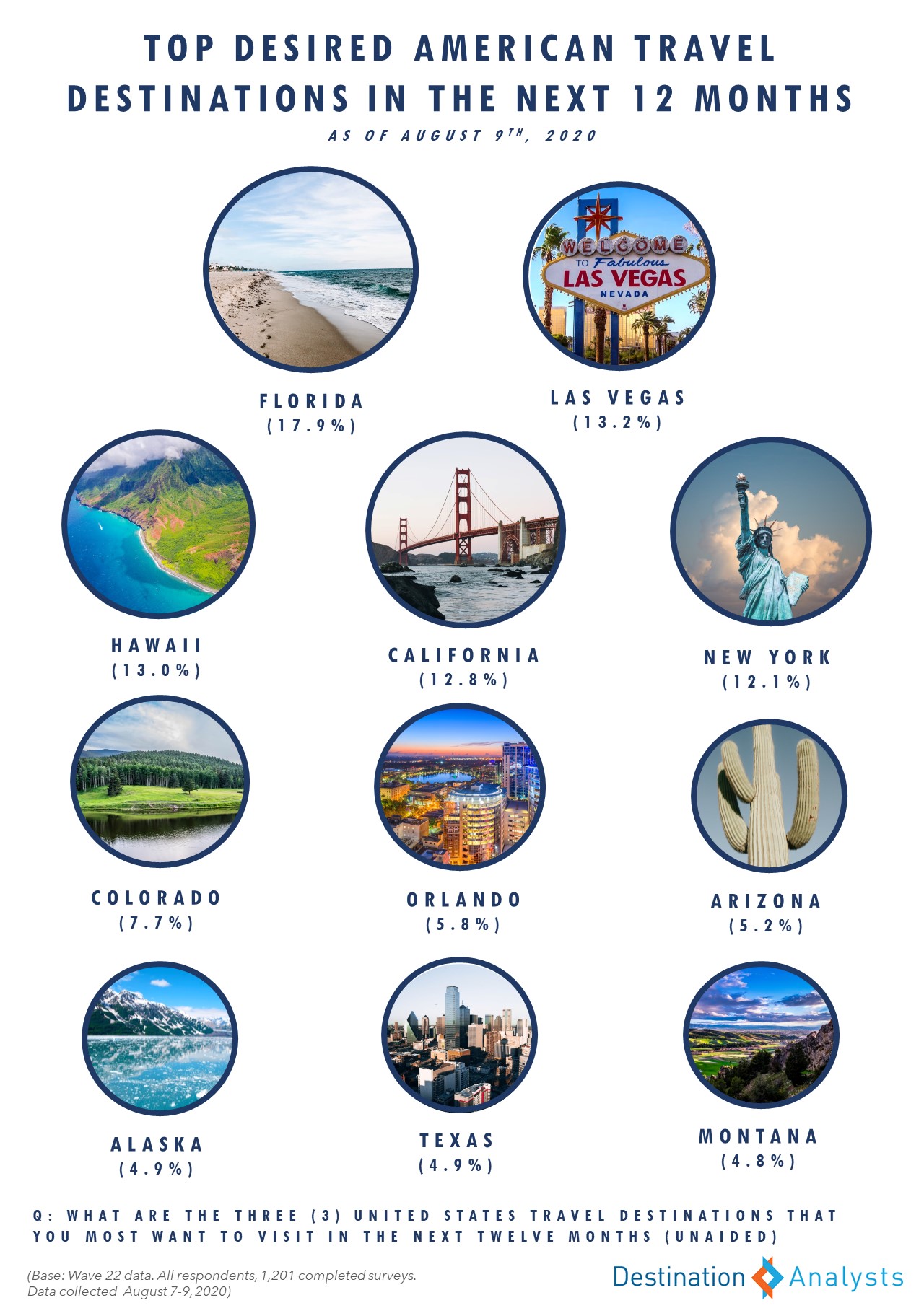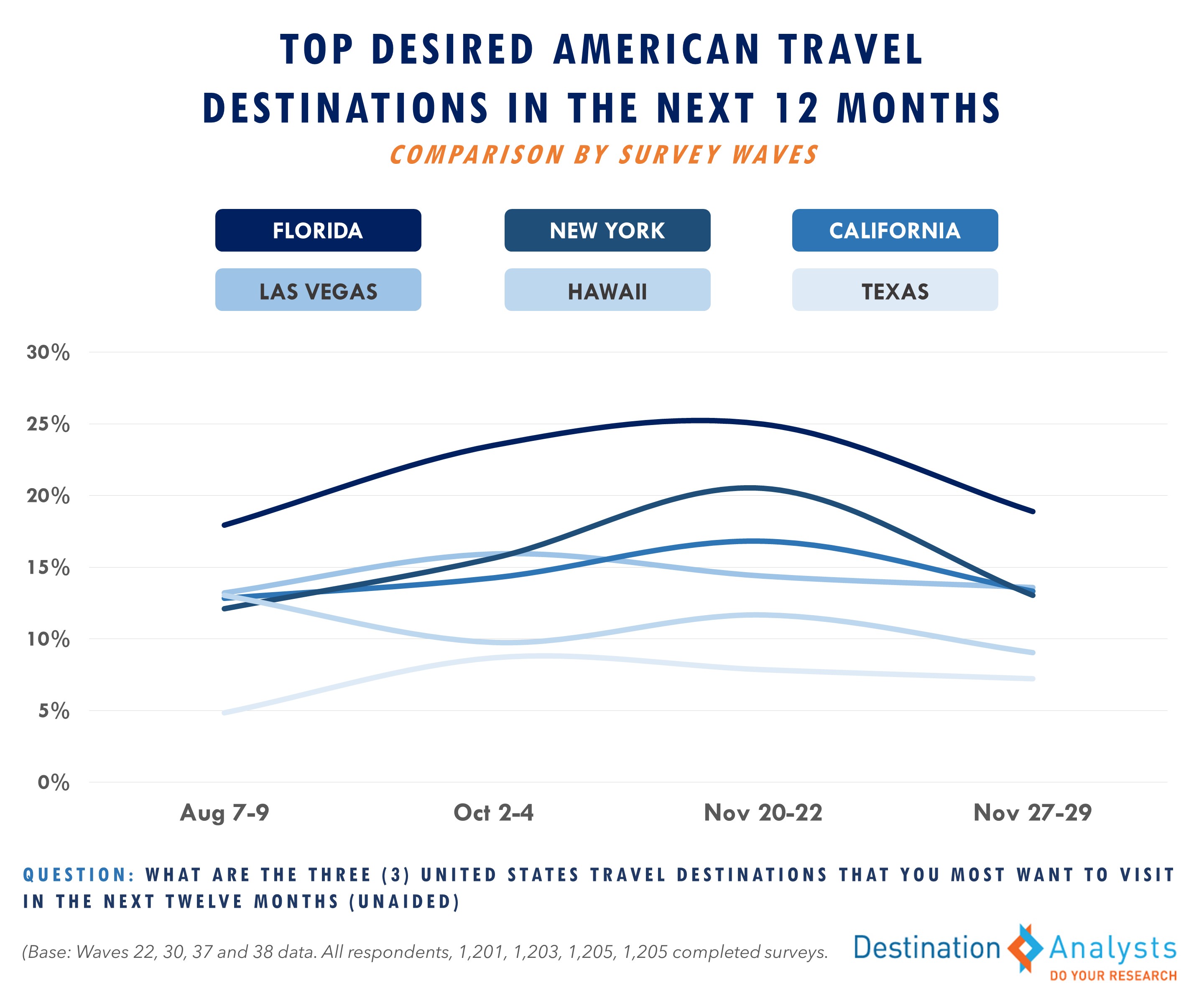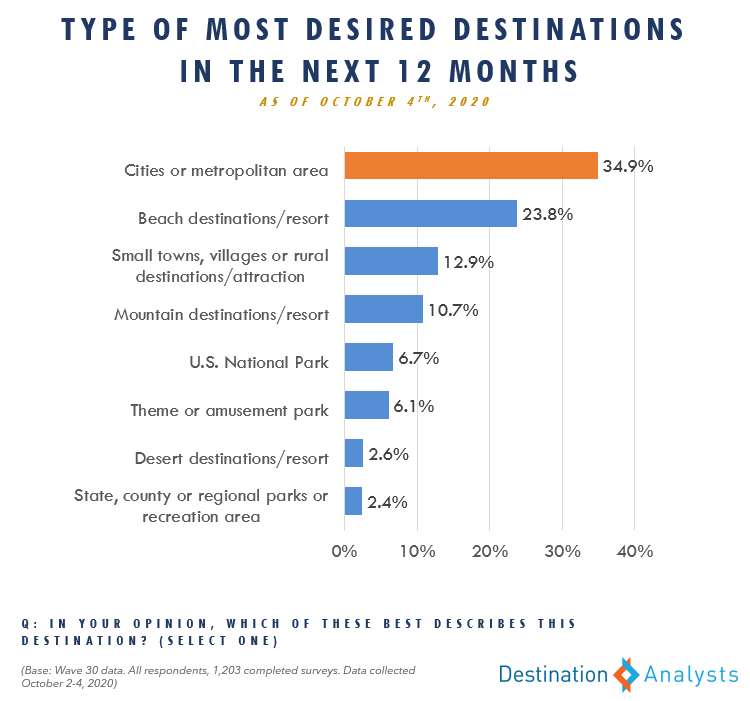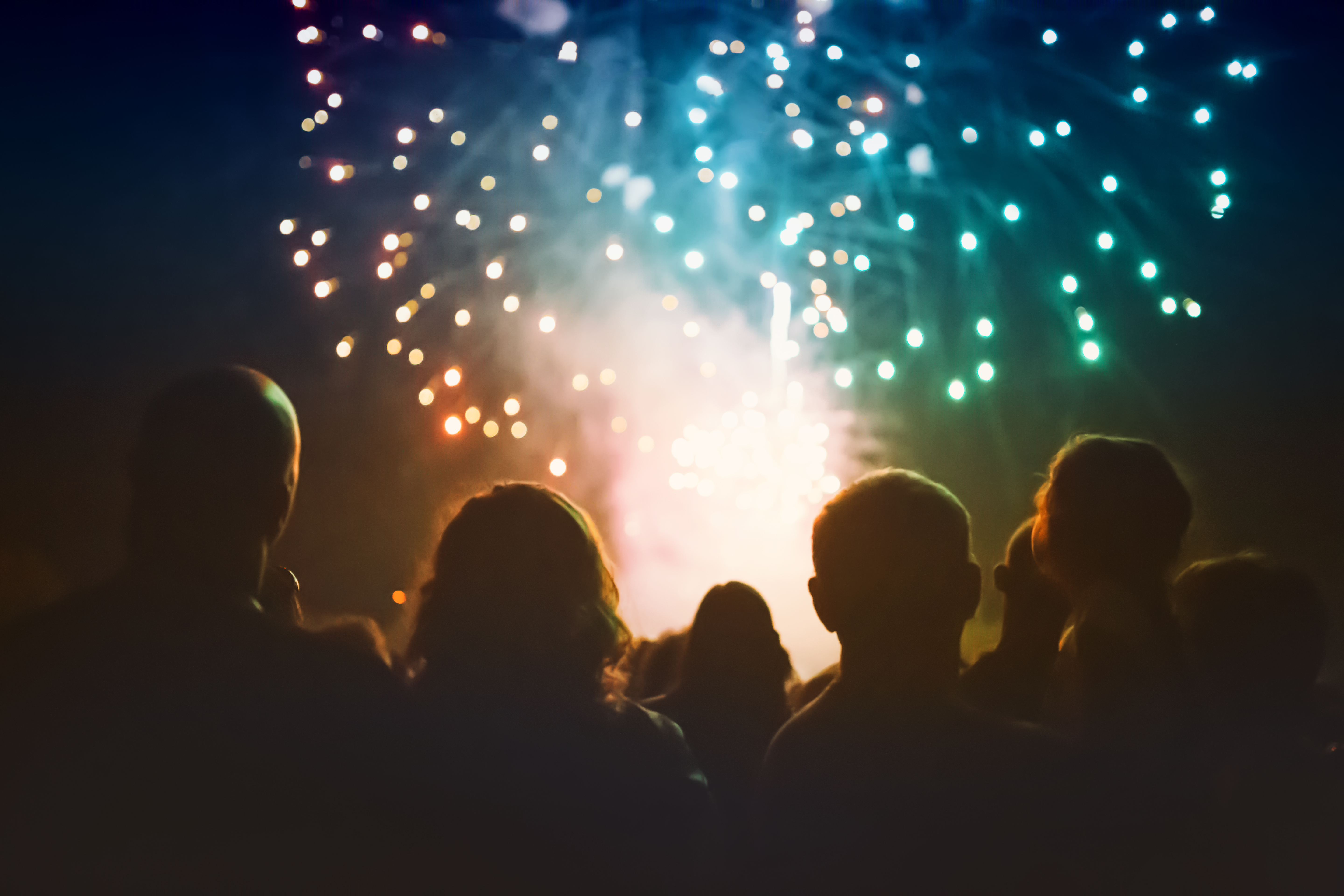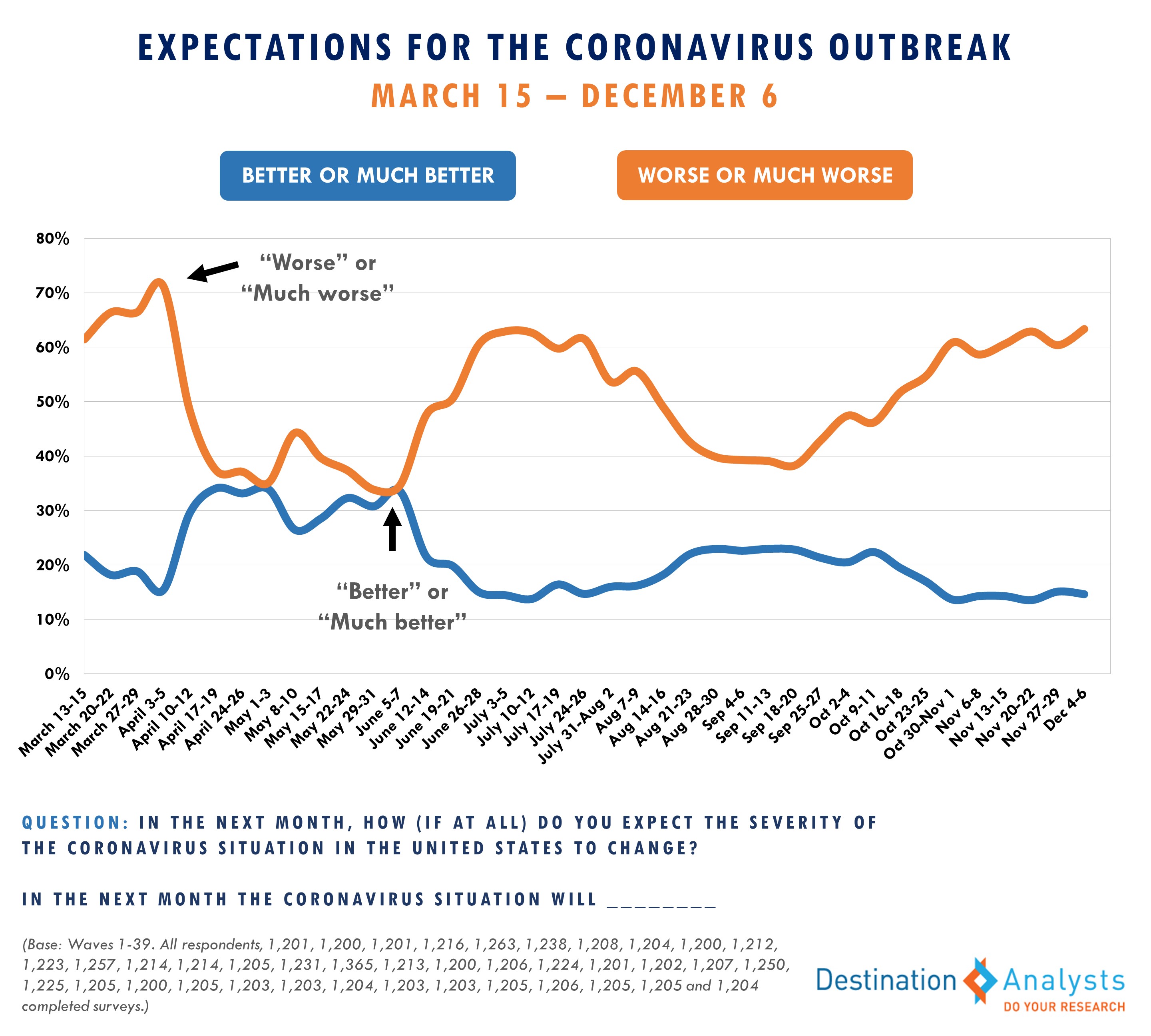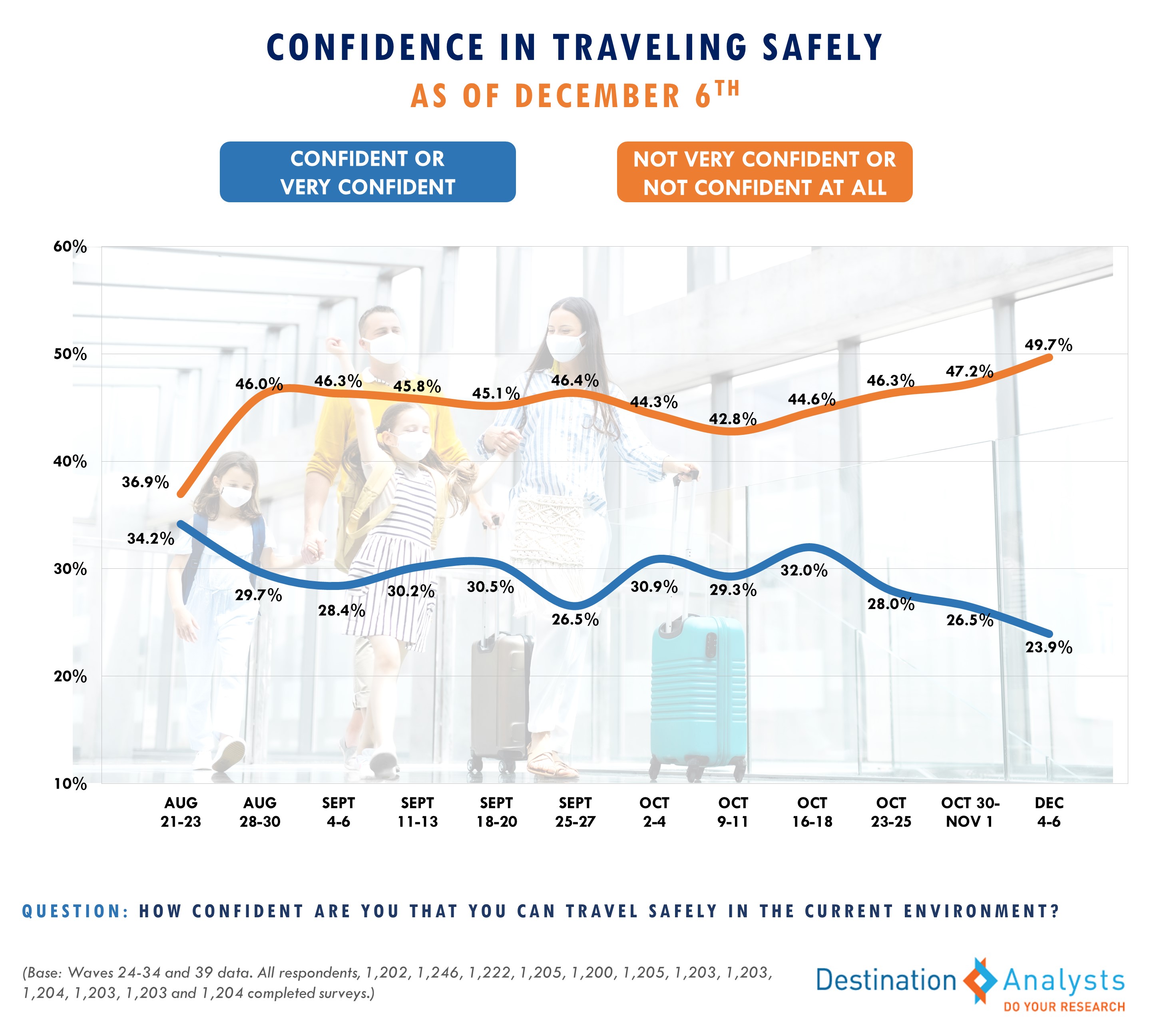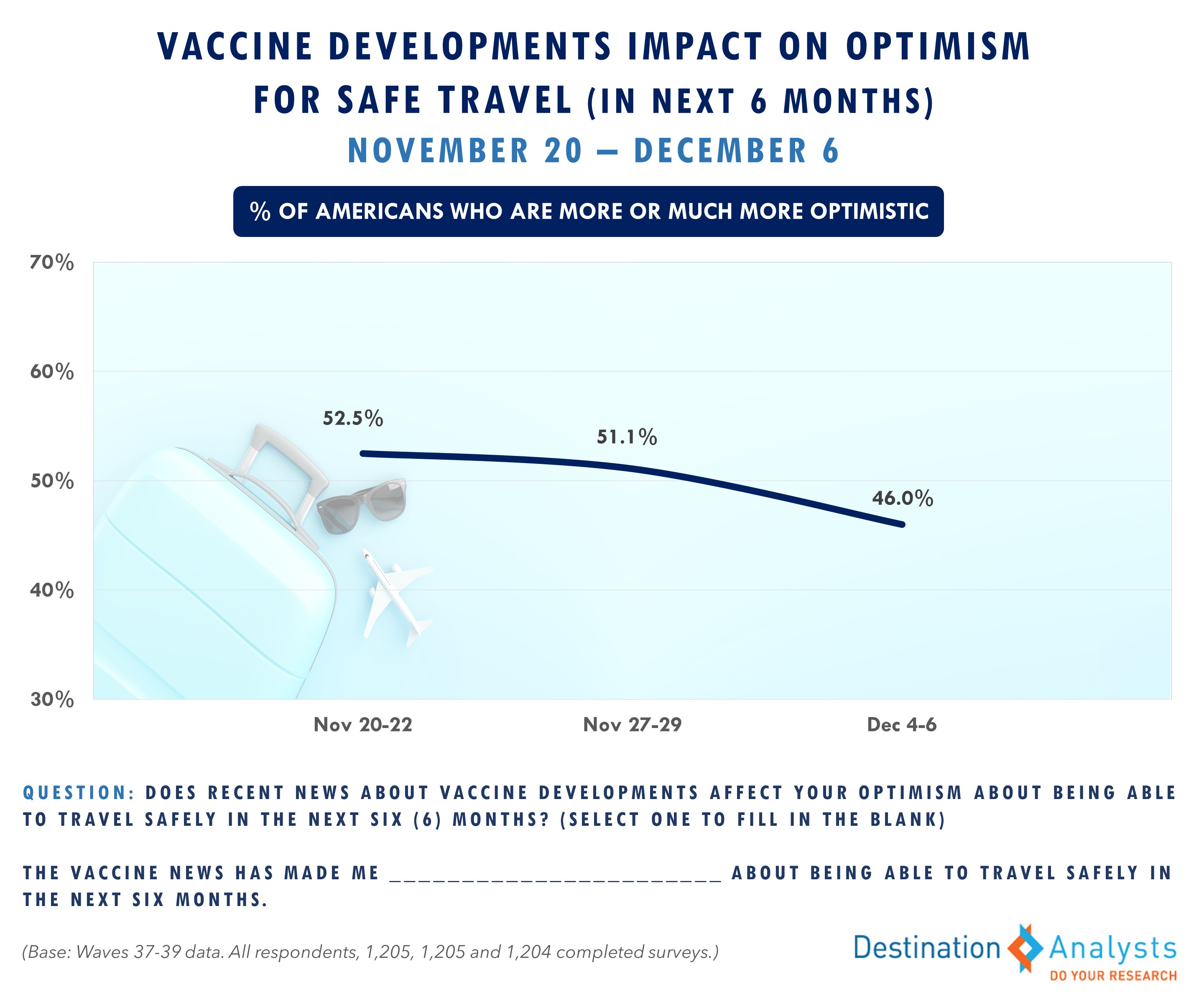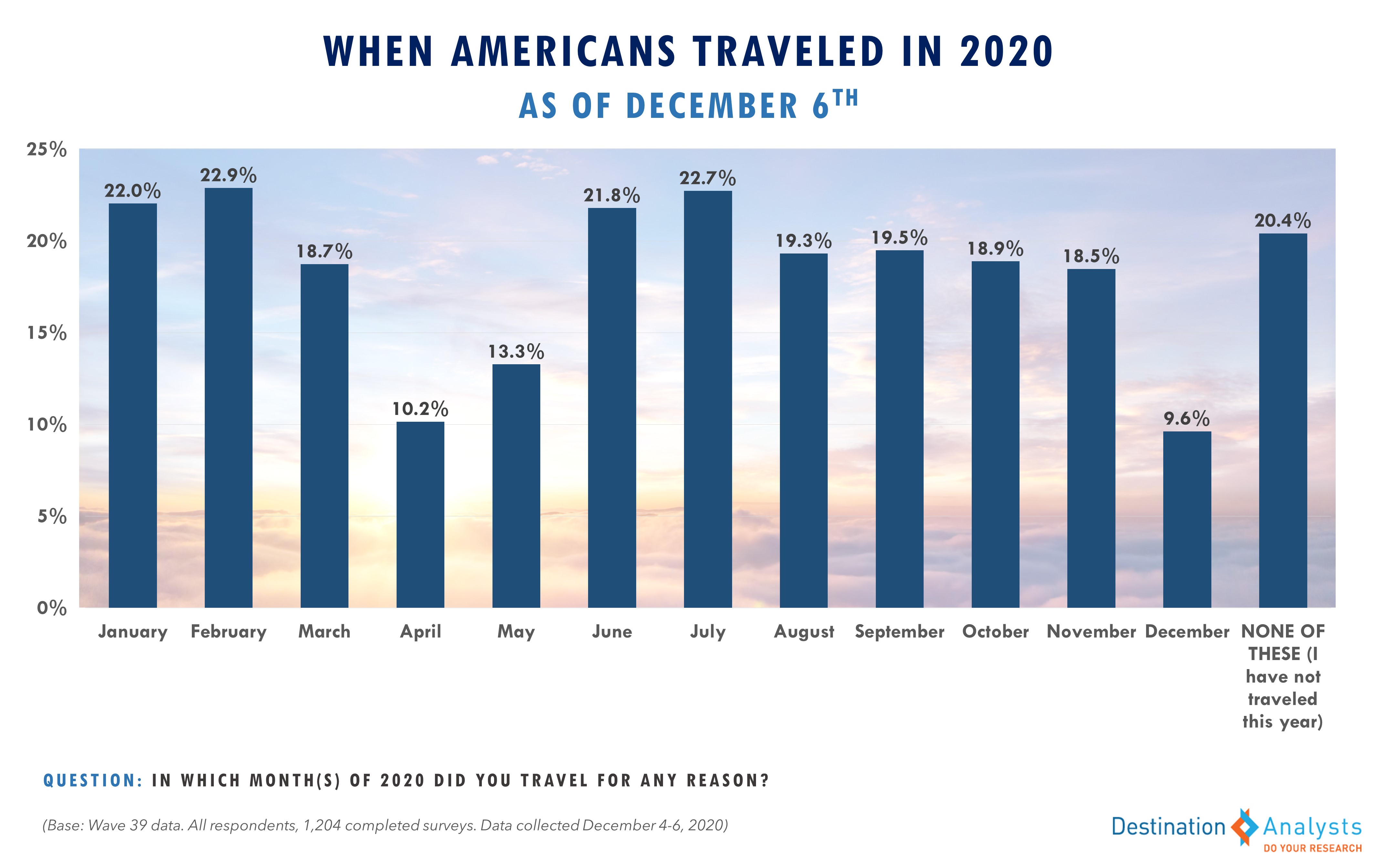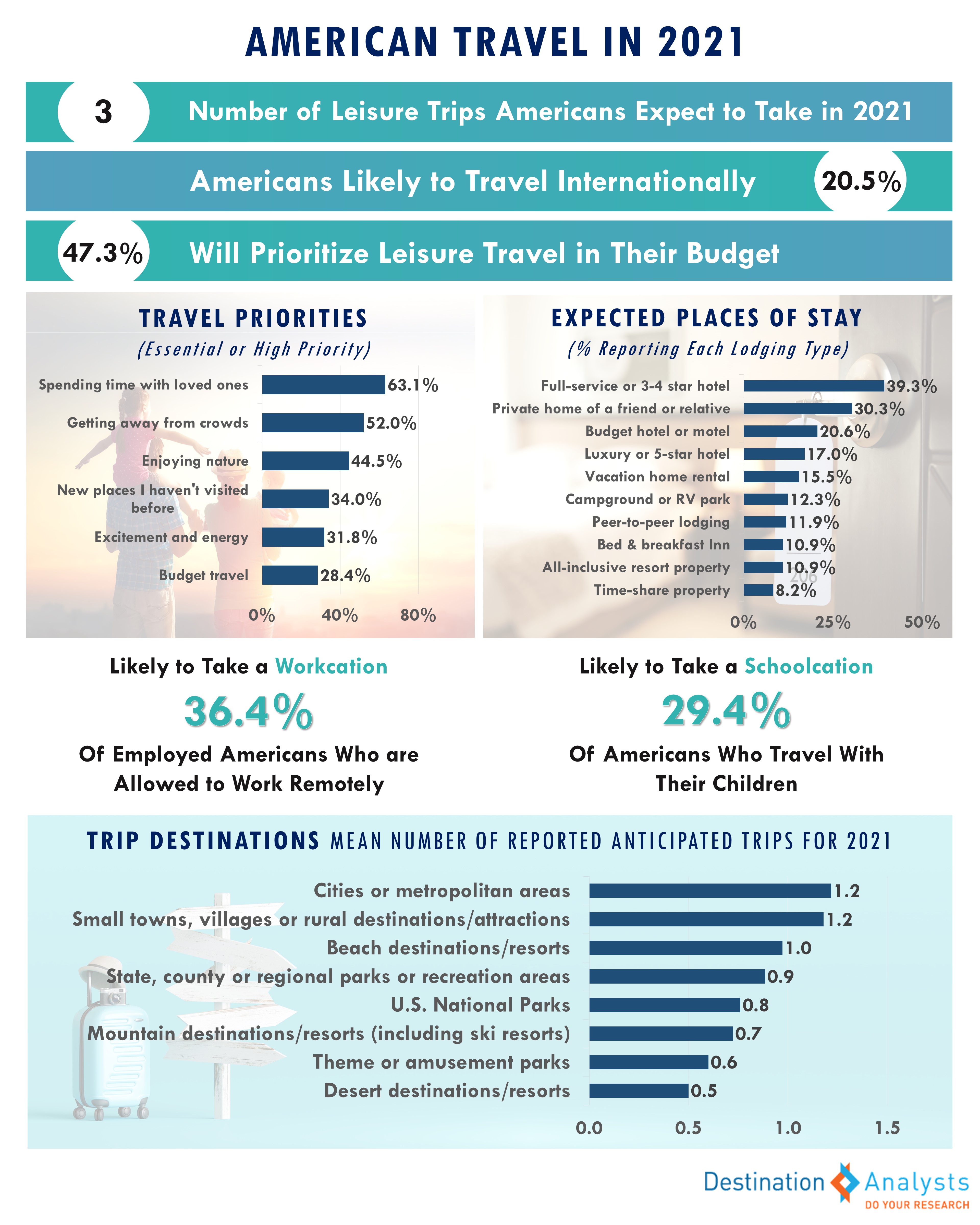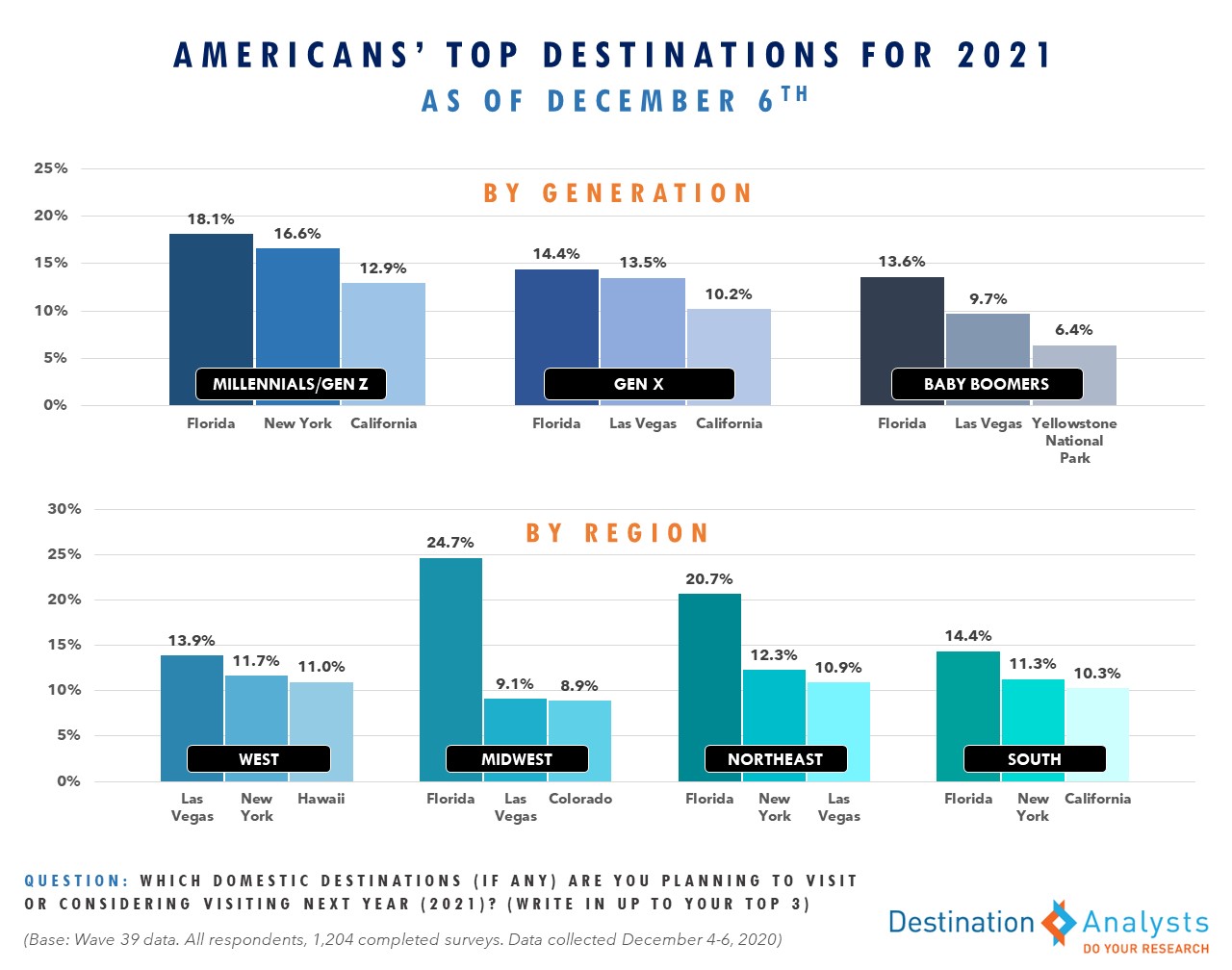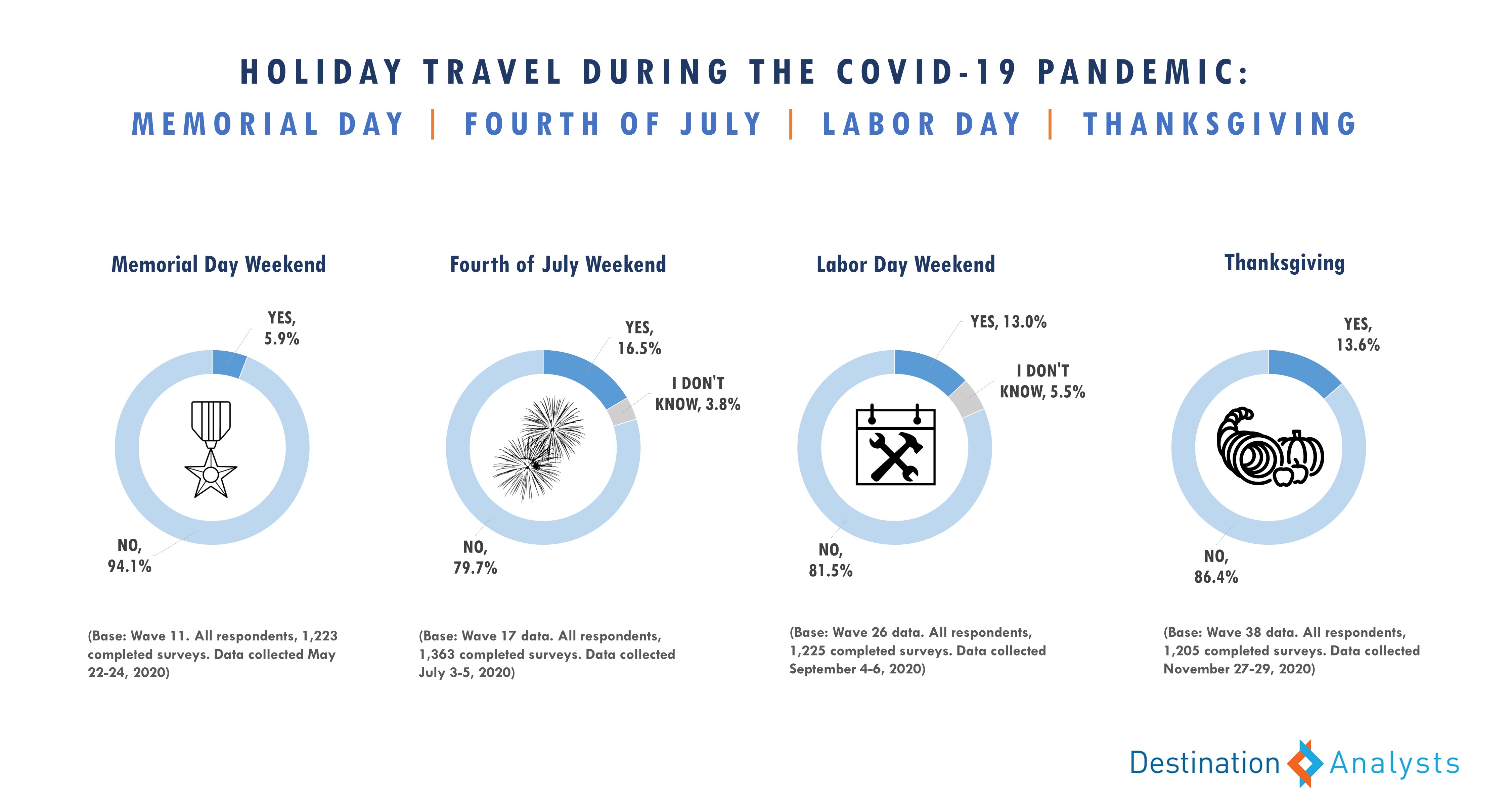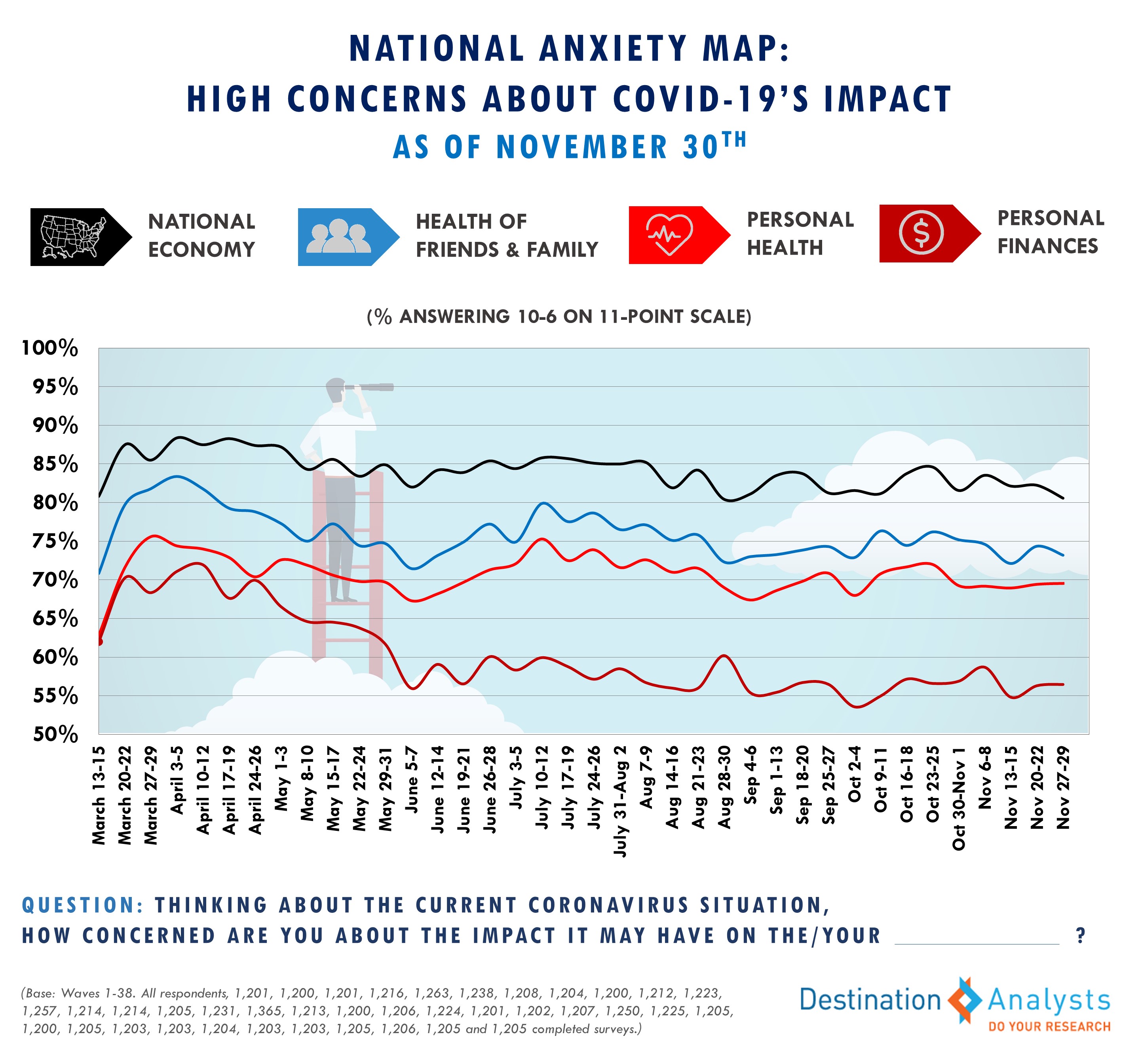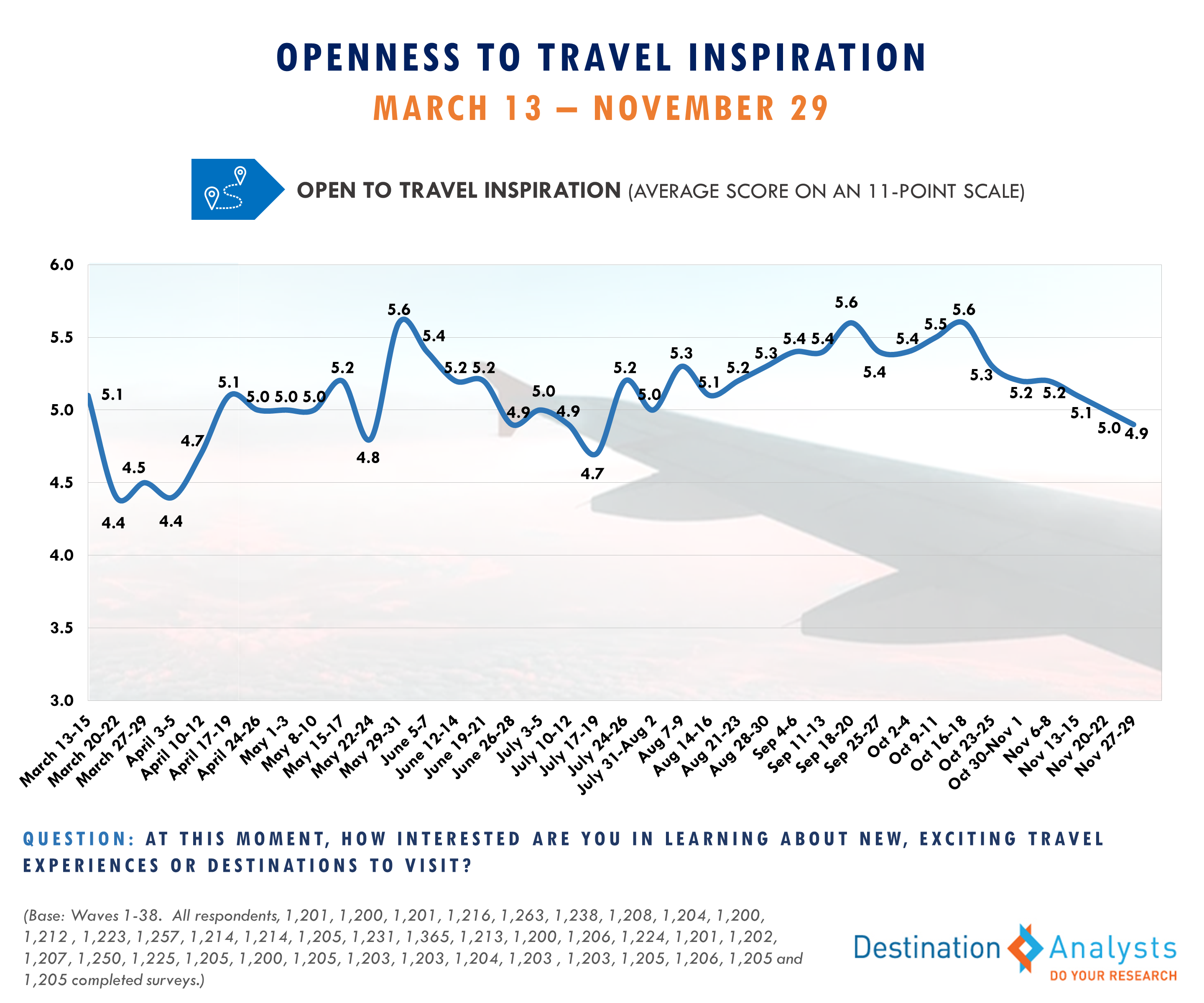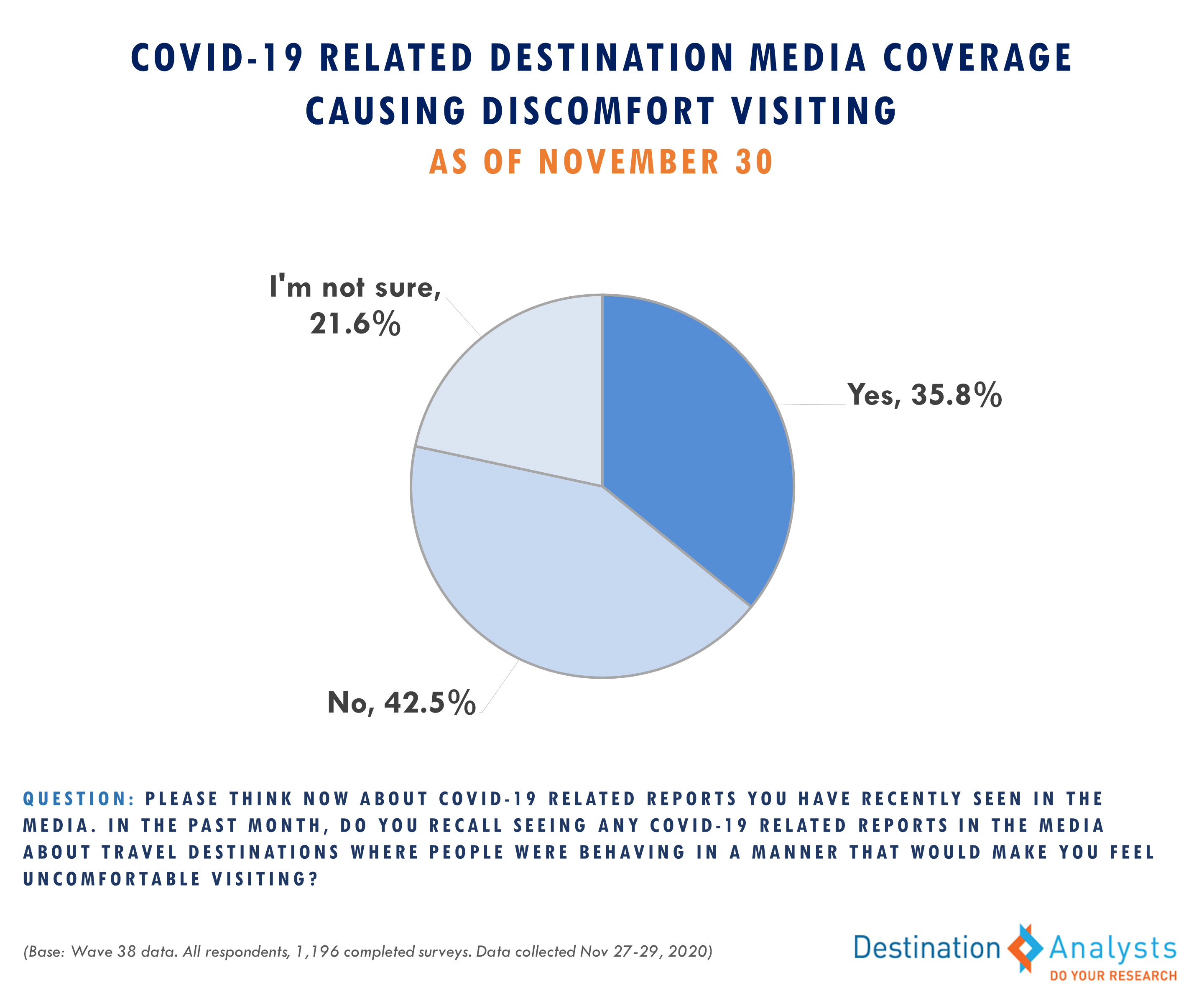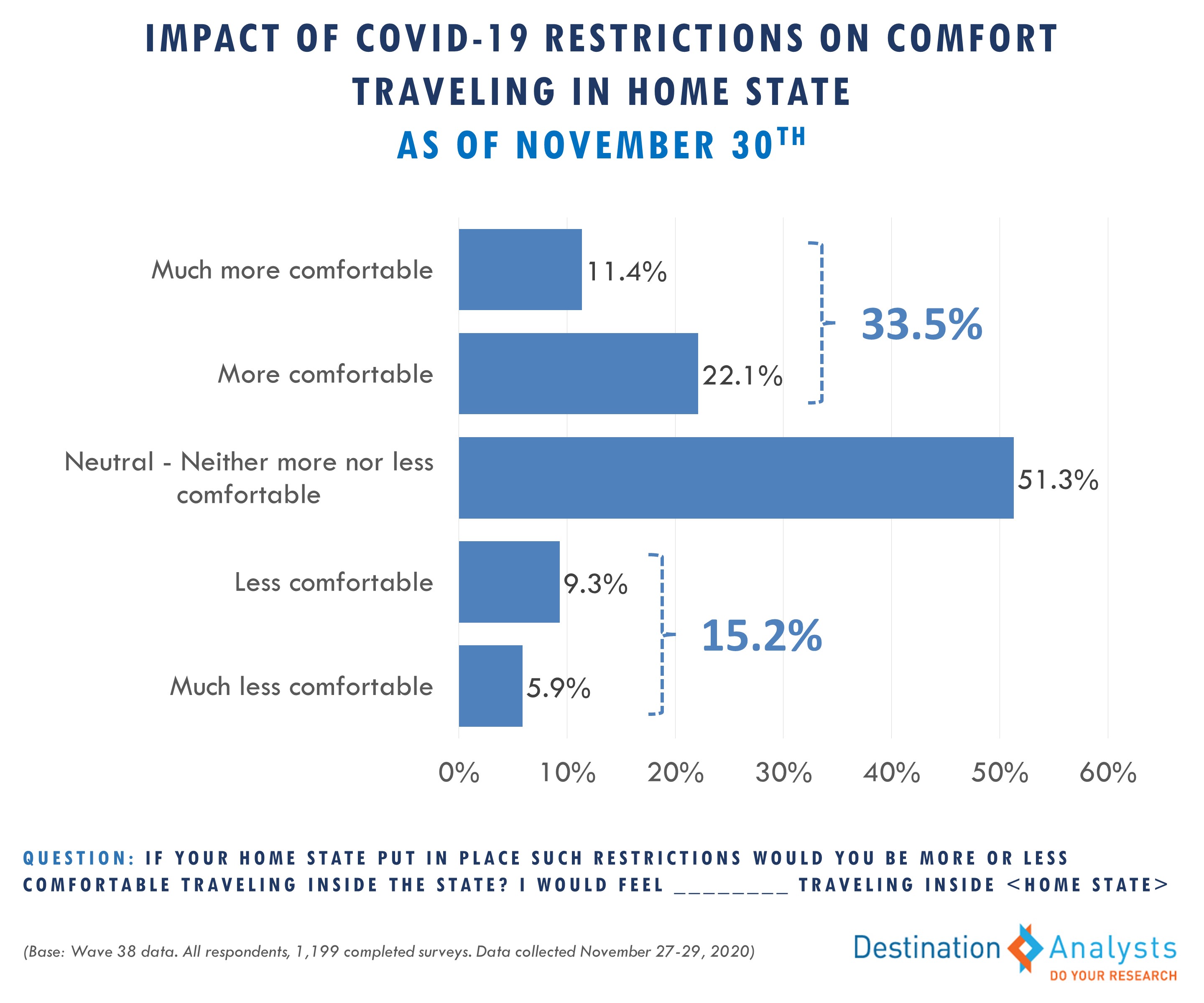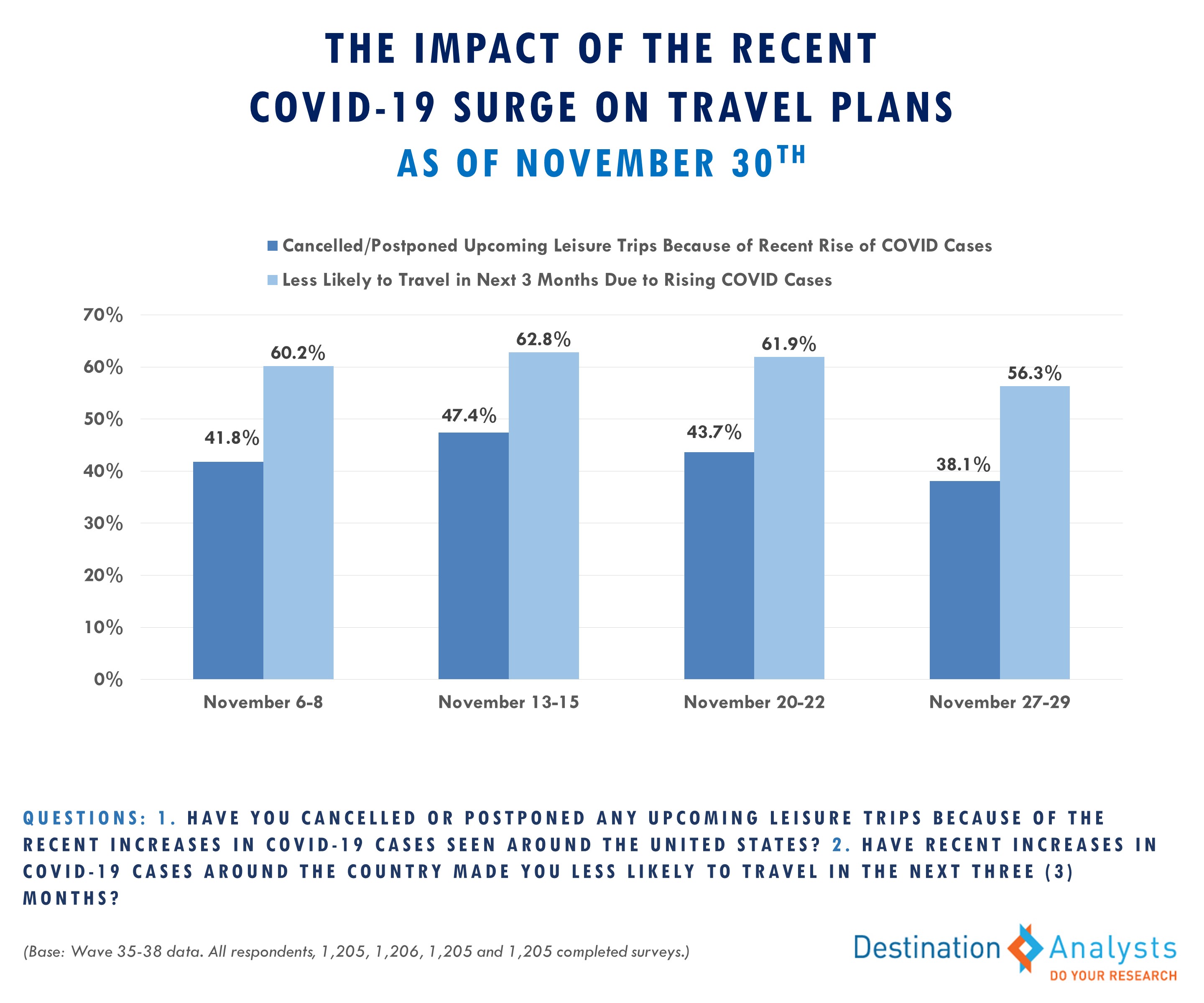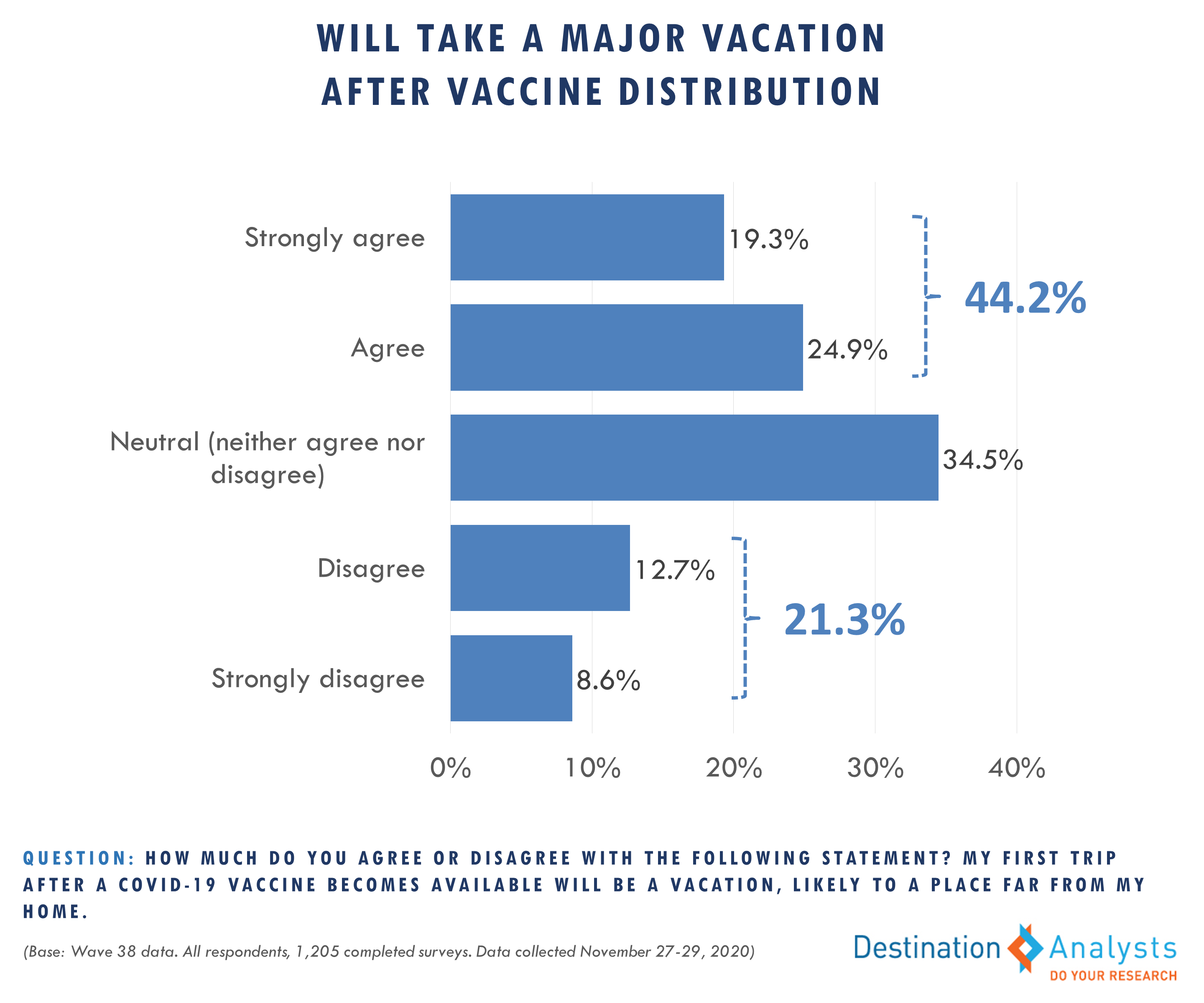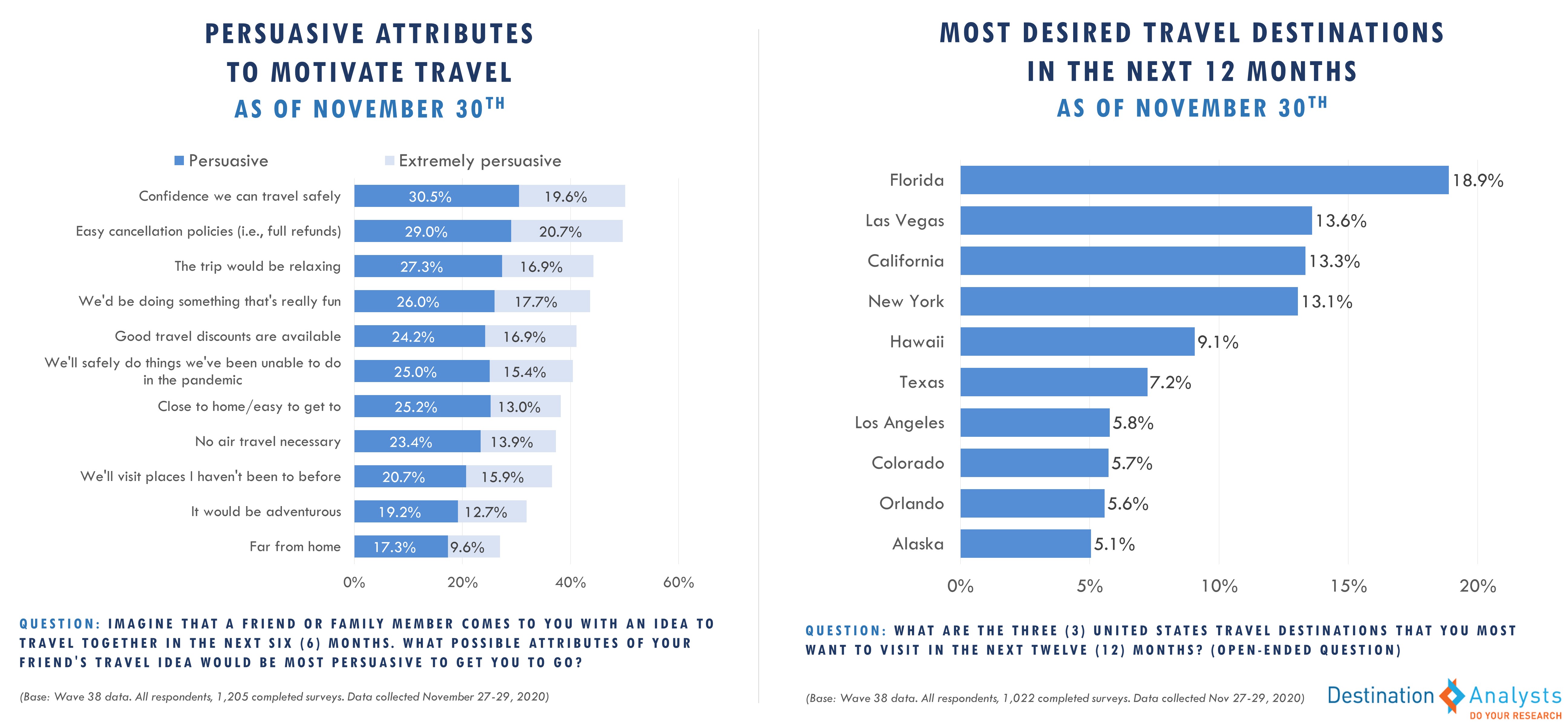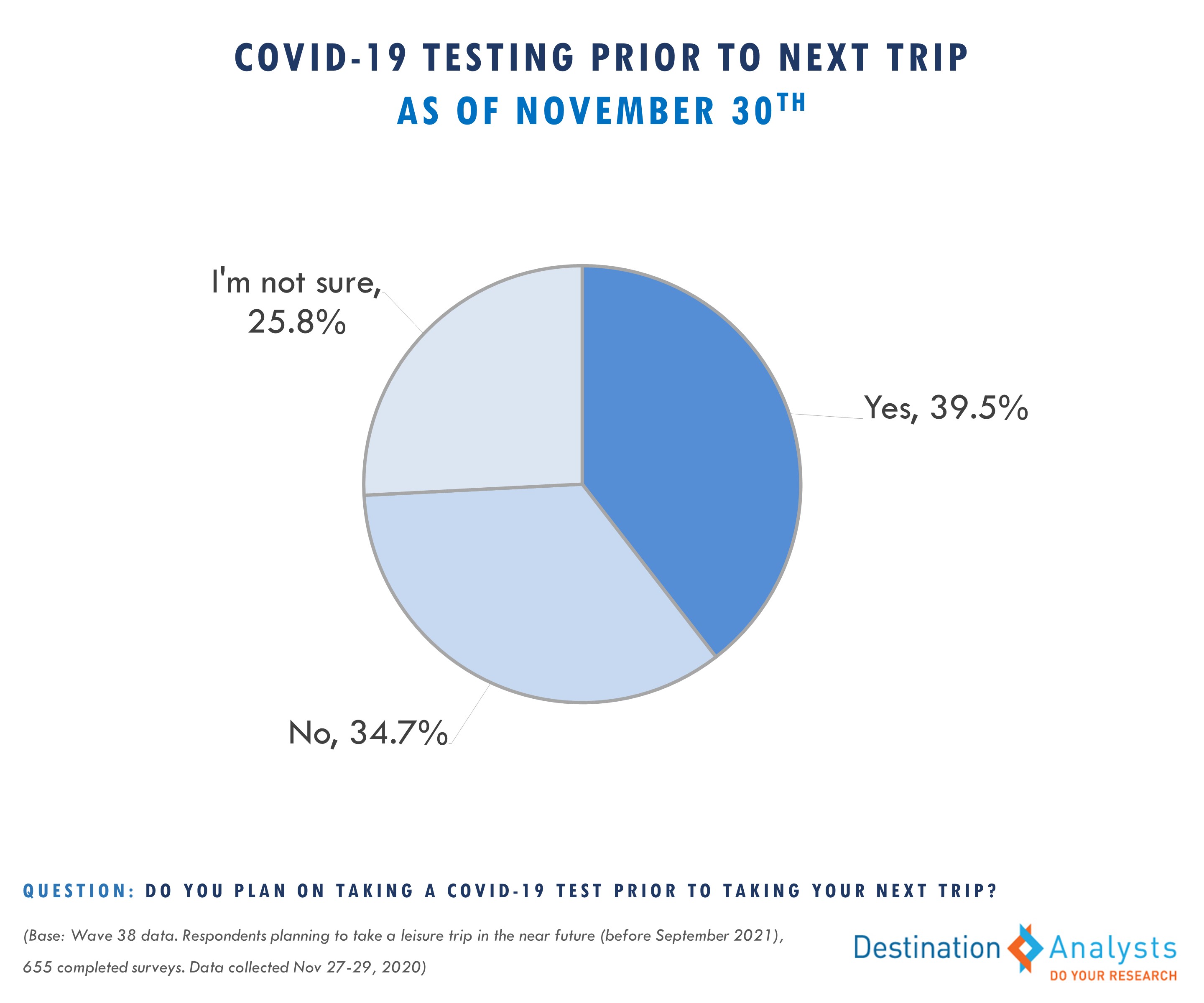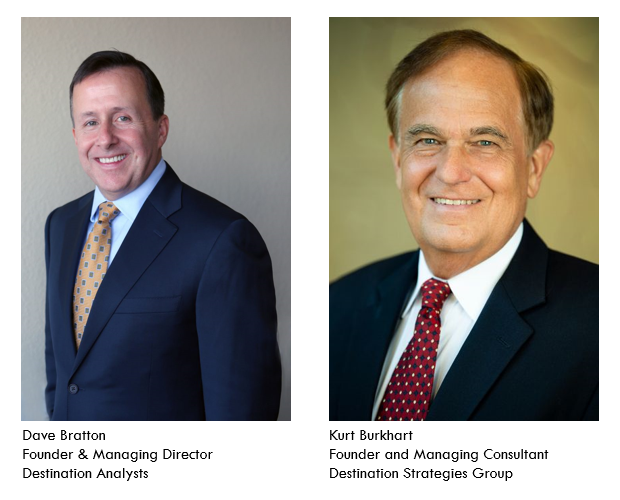After long holding steady, the perceived safety of travel activities is now faltering with this current virus surge. However, the vaccine remains a light to many American travelers who are increasingly willing to take it.

IMPORTANT: These findings are brought to you from our independent research, which is not sponsored, conducted or influenced by any advertising or marketing agency. Every week since March 15th, Destination Analysts has surveyed 1,200+ American travelers about their thoughts, feelings, perceptions and behaviors surrounding travel in the wake of the coronavirus pandemic, and explored a variety of topics. The findings presented below represent data collected December 25th-27th.
Key Findings to Know:
- Americans’ coronavirus-related anxiety levels remained consistent.
- Americans exhibited more polarization this week on whether the coronavirus situation will get worse or better.
- For the first time in four months, those in a ready-to-travel mind set fell below 50%.
- After a sustained period of stability, this current—and largest—surge in coronavirus cases has started to worsen safety perceptions about travel and leisure activities.
- There has also been a slight increase in the percent of Americans who have seen COVID-19 related reports in the media about travel destinations where people were behaving in a manner that would make them feel uncomfortable visiting.
- The recently developed COVID-19 vaccines remain a continual source of light for many Americans. Nearly 63% say these vaccines make them optimistic about life returning to near-normal in the next 6 months. The perceived safety of these vaccines has grown to 63.8%, and American’s willingness to take the COVID-19 vaccine hit 54.1% this week.
- Even in the early stages of distribution, the vaccine has had a positive impact on travel. Three-in-ten American travelers now say they have begun planning or booking future travel in anticipation of the COVID-19 vaccine being widely available. This is even more pronounced among younger travelers.
- With the vaccine-motivated optimism, many American travelers are looking to get inspired. Right now, about half of American travelers say they are open to learning about new destinations to travel to.
- In terms of the channels they feel most receptive to travel messaging in, Millennial and Gen Z travelers say Instagram and Facebook, Gen X and Baby Boomer travelers say search engines and email campaigns.
- Since the onset of the pandemic, 17.3% of American travelers say they have gotten new ideas for places to visit from digital influencers.
As Americans celebrated the Christmas holiday, their coronavirus-related anxiety levels remained consistent. The percent of Americans with elevated concerns about personally contracting the virus (70.3%), their friends/family contracting the virus (76.0%), the virus’ impact on their personal financial situation (53.8%) and the national economy (80.0%) were on par with last week. Interestingly, Americans exhibited more polarization this week on whether the coronavirus situation will get worse or better—the percent that feel it will get worse in the next month grew to 54.5% from 50.9%, while the percent that feel it will get better also grew to 22.1% from 17.8% last week. But given that a study high of 63.3% feel they wouldn’t be able to fully enjoy travel right now and 53.5% say they would feel guilty traveling, for the first time in four months, those in a ready-to-travel mind set fell below 50%.
After a sustained period of stability, this current—and largest—surge in coronavirus cases has started to worsen safety perceptions about travel and leisure activities. The percent of Americans who feel activities such as attending large venue sporting events, visiting an amusement park, zoo or other outdoor attraction, flying on a commercial airline, and going shopping are unsafe has risen in the last few weeks. There has also been a slight increase in the percent of Americans who have seen COVID-19 related reports in the media about travel destinations where people were behaving in a manner that would make them feel uncomfortable visiting. This week, Florida is the top destination Americans report hearing negative coronavirus related tourism coverage of, followed by California and New York.
The recently developed COVID-19 vaccines remain a continual source of light for many Americans. Nearly 63% say these vaccines make them optimistic about life returning to near-normal in the next 6 months. The perceived safety of these vaccines has grown almost 14% in the last two months to 63.8%, and American’s willingness to take the COVID-19 vaccine is on the rise, hitting 54.1% this week.
Even in the early stages of distribution, the vaccine has had a positive impact on travel. Over 53% say the vaccine makes them optimistic they can travel safely within the next 6 months. Three-in-ten American travelers now say they have begun planning or booking future travel in anticipation of the COVID-19 vaccine being widely available, and 83.7% have at least tentative trip plans right now. Vaccine-inspired travel planning is even more pronounced among younger travelers. In total, 38.3% of Millennial age travelers say they have begun planning and booking trips because of vaccine distribution expectations.
With the vaccine-motivated optimism, many American travelers are looking to get inspired. Right now, about half of American travelers say they are open to learning about new destinations to travel to. In terms of the channels they feel most receptive to travel messaging in, Millennial and Gen Z travelers say Instagram and Facebook, followed by email, online articles, streaming video services and ads on the Internet. Gen X travelers say they can best be reached through search engines, email campaigns, Facebook and broadcast television. Baby Boomer travelers largely say they are most receptive to travel messaging through search engines, followed by email campaigns, broadcast television and printed official visitor guides. Even with travel so disrupted this year, since the onset of the pandemic, 17.3% of American travelers say they have gotten new ideas for places to visit from digital influencers. This is driven largely by younger travelers, nearly one-third of which report being travel inspired by a digital influencer.

